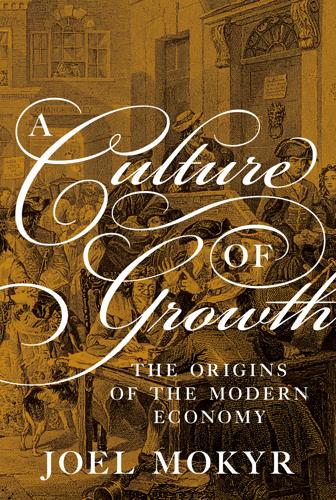
A Culture of Growth: The Origins of the Modern Economy
by
Joel Mokyr
Published 8 Jan 2016
In the Age of Enlightenment, Amsterdam became the location for presses that published books prohibited elsewhere, “the central city of the Republic of Letters” in that limited sense (Eisenstein, 1979, p. 420). The most famous French authors of the age of Enlightenment were published primarily by printers outside France. As discussed below in chapter 15, formal academies and scientific societies represented the institutionalization of the Republic of Letters, but did not play a central role until the closing decades of the seventeenth century. Virtual or not, the Republic of Letters was the main institution behind the meteoric takeoff of useful knowledge in Europe during the Scientific Revolution and the Enlightenment.
…
The eighteenth century after all was not just the age of Enlightenment, it was also an age of mercantilism, and the information made available freely in the Republic of Letters was often gathered to serve the interests of the state—as Bacon had advocated. But if enlightened cosmopolitanism could not altogether suppress nationalism in an age of mercantilist ideals, the members of the Republic of Letters argued that the reputation and glory of a country would be enhanced if foreign scholars celebrated the achievements of its scholars (Daston, 1991, pp. 378–79). Despite the many claims of the citizens of the Republic of Letters about the utility of their learning and intellectual innovations, before 1700 it is quite hard to point to many breakthroughs resulting from the work that natural philosophers did that dramatically changed a technological practice.
…
Above all, however, it was the growing needs of commerce and finance for information and communications as it increasingly dealt with long-distance trade, both inter- and intracontinental.20 The infrastructure on which the Republic of Letters rested was thus an unintended by-product of other historical phenomena.21 In that sense cultural change may be seen as being driven by the material world, but in a far more contingent and roundabout way than historical materialism would have us believe. Thus, the epistolary network, as it developed after 1500, was an essential part of the Republic of Letters. To be a member of the intellectual community of the Republic of Letters was to be connected with others. As Paul Dibon (1978, p. 46) has noted, “it was the strict duty of each citizen of the Respublica Literaria to establish, maintain, and encourage communication, primarily by personal correspondence or contact.”
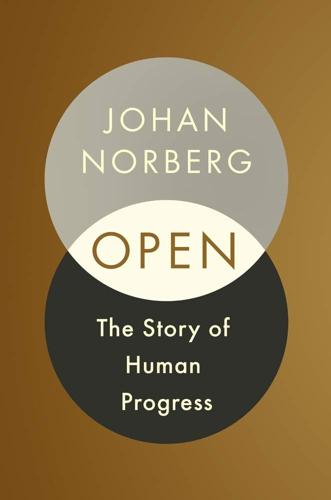
Open: The Story of Human Progress
by
Johan Norberg
Published 14 Sep 2020
With new telescopes, microscopes, thermometers, barometers, chronographs and vacuum pumps, which they often built themselves, they uncovered more of nature’s secrets than ever before. The Republic of Letters Tying philosophers and scientists together was the remarkable Republic of Letters, ‘the main institution behind the meteoric takeoff of useful knowledge in Europe during the Scientific Revolution and the Enlightenment’, according to the Dutch-American-Israeli historian Joel Mokyr, who has documented its importance.49 The Republic of Letters was a spontaneously organized institution, consisting of intellectuals who corresponded on philosophy, politics and science.
…
By doing so, they established a tradition of criticism, which is something very unusual in the history of the world. A tradition is by definition a behaviour passed on by previous generations. The extraordinary achievement by the Republic of Letters and other Enlightenment thinkers was that they managed to turn the challenge of tradition into a new tradition. Dogmatic slumber Research is a collaborative and cosmopolitan venture as well as a competitive one. Today, a single academic paper can look a bit like the Republic of Letters. Between 2014 and 2018, there were 1315 papers listed in the Web of Science citation index by more than a thousand co-authors. There were forty-nine papers during this time that were co-authored by scientists from more than sixty countries, and nearly two-thirds of these had authors from more than eighty countries.54 The Enlightenment tradition lives on in systems of free speech, independent media, universities and academic journals, and that is why we need systems of schooling that are independent of the ruling political majority.
…
‘Truth has ever originated from the conflict of the mind with mind; it is the bright spark that emanates from the collision of opposing ideas,’ as Mill’s friend and contemporary Herbert Spencer put it.63 The mixing of people and ideas gave us the Renaissance and the Enlightenment and the Industrial Revolution. The Republic of Letters was a momentous example of what can happen when people meet across borders, but we also saw this mixing across professional borders within societies during this period, as bridges were being built between formal sciences, practical work and commercial skill. Bacon had called for cooperation between savants and fabricants – those who knew things and those who made things – and soon philosophers visited mechanical workshops and craftsmen studied scientific papers.
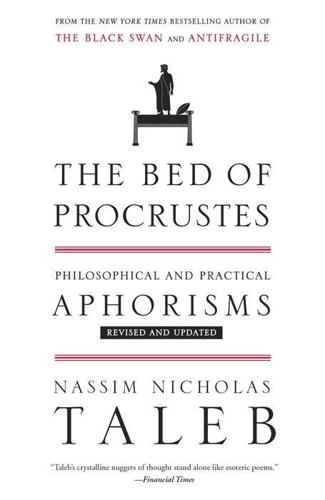
The Bed of Procrustes: Philosophical and Practical Aphorisms
by
Nassim Nicholas Taleb
Published 30 Nov 2010
TALEB CONTENTS Cover Other Books by This Author Title Page Copyright Dedication Procrustes PRELUDES COUNTER NARRATIVES MATTERS ONTOLOGICAL THE SACRED AND THE PROFANE CHANCE, SUCCESS, HAPPINESS, AND STOICISM CHARMING AND LESS CHARMING SUCKER PROBLEMS THESEUS, OR LIVING THE PALEO LIFE THE REPUBLIC OF LETTERS THE UNIVERSAL AND THE PARTICULAR FOOLED BY RANDOMNESS AESTHETICS ETHICS ROBUSTNESS AND FRAGILITY THE LUDIC FALLACY AND DOMAIN DEPENDENCE EPISTEMOLOGY AND SUBTRACTIVE KNOWLEDGE THE SCANDAL OF PREDICTION BEING A PHILOSOPHER AND MANAGING TO REMAIN ONE ECONOMIC LIFE AND OTHER VERY VULGAR SUBJECTS THE SAGE, THE WEAK, AND THE MAGNIFICENT THE IMPLICIT AND THE EXPLICIT ON THE VARIETIES OF LOVE AND NONLOVE THE END Postface Acknowledgments About the Author PROCRUSTES Procrustes, in Greek mythology, was the cruel owner of a small estate in Corydalus in Attica, on the way between Athens and Eleusis, where the mystery rites were performed.
…
– When I look at people on treadmills I wonder how alpha lions, the strongest, expend the least amount of energy, sleeping twenty hours a day; others hunt for them. Caesar pontem fecit.* – Every social association that is not face-to-face is injurious to your health. * Literally, “Caesar built a bridge,” but the subtlety is that it can also suggest that “he had a bridge built for him.” THE REPUBLIC OF LETTERS Writing is the art of repeating oneself without anyone noticing. – Most people write so they can remember things; I write to forget. – What they call philosophy I call literature; what they call literature I call journalism; what they call journalism I call gossip; and what they call gossip I call (generously) voyeurism
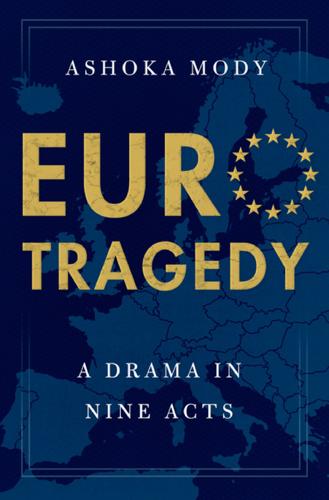
EuroTragedy: A Drama in Nine Acts
by
Ashoka Mody
Published 7 May 2018
Galileo Galilei, Johannes Kepler, and Isaac Newton were among the intellectual giants. Universities, academies, and learned societies “sprang up all over Europe,” which created a ferment of innovative excitement.42 Europe was successful then as a republic of letters, not as a political organization that tried to coordinate European nations through rules and committees. Europe must again be a republic of letters invigorated by competition among its nation-states. It is time for Europeans to come together once again in the marketplace for ideas. In this marketplace, the currency must be the willingness to pursue excellence, and spirited intellectual exchange must advance the next generation of scientific methods and technologies. 452 e u r o t r a g e d y The question we need to ask today is how we can build a new republic of letters.
…
So let us each, according to our national genius, build our own outstanding schools and colleges. These will become the modern agora, the network within a new European Republic of Letters, where vast numbers of self-confident European youth meet. The agora will be the foundation of a consistent and creative affirmation of European values, rooted in respect and fairness. The agora and the values it promotes will become the European identity. Our youth will be better prepared to face the forces of globalization, and they will be proud Europeans. Quite simply, if we create a European Republic of Letters, economic dynamism and political goodwill will give us the reserves to deal with financial and political crises.
…
And European identity cannot continue to be defined by fiscal and monetary rules which, while emphasizing prudence and stability, are administered by officials who can never be held accountable for their decisions. Instead, a modern European Republic of Letters can create an identity based on collective aesthetic and intellectual aspirations that emerge through spontaneous interactions. The republic of letters scenario holds great promise. But even in this more hopeful Europe, the single currency area will always be subject to the one risk that finally undid the US monetary union as it existed before the Great Depression.
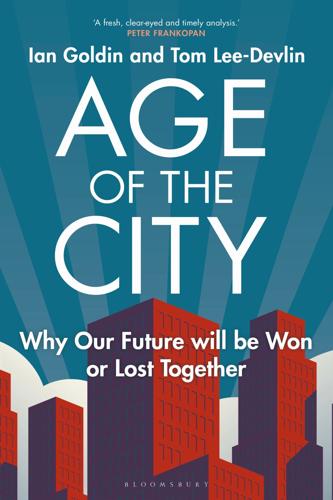
Age of the City: Why Our Future Will Be Won or Lost Together
by
Ian Goldin
and
Tom Lee-Devlin
Published 21 Jun 2023
During the seventeenth and eighteenth centuries, an informal community of intellectuals formed across Europe that came to be known as the Republic of Letters. Through written correspondence, they would disseminate new ideas and challenge one another’s thinking. The network included a range of figures such as Adam Smith, David Hume, Benjamin Franklin, Jean-Jacques Rousseau, Voltaire and many others who together forged the movement of free thinking and enquiry that came to be known as the European Enlightenment. Far from diminishing the importance of cities as centres of European thought, the Republic of Letters made them even more vital. Gatherings in the salons of Paris, the clubs of Edinburgh and the coffeehouses of London nourished the flow of new ideas.49 And many of the relationships that underpinned correspondence were forged in cities.
…
Gatherings in the salons of Paris, the clubs of Edinburgh and the coffeehouses of London nourished the flow of new ideas.49 And many of the relationships that underpinned correspondence were forged in cities. As a case in point, it was not until a voyage to London in 1763 that Benjamin Franklin began his correspondence with revolutionary thinkers on the continent.50 Without the Republic of Letters, Europe is unlikely to have formed the pattern of free thinking and practical enquiry that made possible one of the most consequential phases of technological invention in human history: the industrial revolution.51 If we took someone living in Britain in 1000 ce and propelled them forward in a time machine century by century, they might initially be surprised to see how little life changed for future generations.
…
Index abortion here abstract mathematics here Achaemenid Empire here Adani, Gautam here agglomeration effects here agriculture here, here, here, here, here, here, here, here, here and carbon emissions here and disease here, here productivity here, here vertical farming here Ahmedabad here air-conditioning here, here airports here, here, here, here Albuquerque here Alexandria here Allen, Paul here Allen, Thomas here Altrincham here Amazon here, here, here Amazon rainforest here Amsterdam here Anatolia here Anderson, Benedict here Anheuser-Busch here antibiotics here, here, here Antonine Plague here Anyang here apartment conversions here, here Apple here, here, here Aristotle here Arizona State University here Arlington here Assyrian merchants here Athens, Ancient here, here, here, here, here, here Atlanta here, here Austin here, here, here automation here, here, here, here, here, here, here, here axial precession here Baghdad, House of Wisdom here Baltimore here, here Bangalore here, here Bangkok here Bangladesh here, here, here, here Barlow, John Perry here Bauhaus here Beijing here, here Belmar redevelopment here Berkes, Enrico here Berlin here, here, here Berlin Wall, fall of here Bezos, Jeff here biological weapons here ‘biophilia’ here biospheres here bird flu here Birmingham here, here Black Death here, here, here Blake, William here Bloom, Nick here BMW here ‘bobo’ (bourgeois bohemian) here, here, here Boccaccio, Giovanni here Boeing here, here, here Bogota here Bologna here Bonfire of the Vanities here Borneo here Boston here, here, here Boston University here, here Brand, Stewart here Brazil here, here Brexit here, here, here Bristol here Britain broadcasting here deindustrialization here education here enclosure movement here foreign aid here high-speed rail here, here house prices here immigration here industrialization here, here infant mortality here ‘levelling up’ here life expectancy here mayoralties here per capita emissions here per capita incomes here remote working here social housing here Brixton riots here broadcasting here Bronze Age here, here, here, here bronze, and shift to iron here Brooks, David here Brynjolfsson, Eric here Burgess, Ernest here bushmeat here, here Byzantine Empire, fall of here Cairncross, Frances here Cairo here calendar, invention of here Cambridge, Massachusetts here Cambridge University here canals here, here, here ‘cancel culture’ here Cape Town here Catholic Church here C40 Cities partnership here Chadwick, Edwin here Chang’an (Xi’an) here, here, here, here Charles, Prince of Wales here charter cities here Chengdu here Chiba here Chicago here, here, here, here, here, here, here, here childbirth, average age at here childcare here, here, here, here, here China here ancient here, here, here, here call-centre workers here cereal production here civil strife here and Covid-19 pandemic here Cultural Revolution here definition of cities here economic liberalization here entry into WTO here Household Responsibility System here hukou system here One Child Policy here Open Coastal Cities here per capita emissions here rapid ageing here Special Economic Zones here technology here urbanization here China Towns here Chinese Communist Party here cholera here, here, here, here Chongqing here cities, definition of here Citigroup here city networks here civil wars here Cleveland here, here, here, here climate change here, here, here, here, here, here, here, here, here, here coastal cities here, here, here, here commuting here, here, here, here, here, here, here, here Concentric Zone Model here Confucius here conspiracy theories here Constantinople here, here containerization here, here Copenhagen here, here Corinth here Cornwall here corruption here Coventry here, here covid-19 see pandemics crime rates here ‘cyberbalkanization’ here cycling here, here, here, here Damascus here Dark Ages here, here data science here de Soto, Hernando here deforestation here, here, here, here Delhi here Dell here Delphic oracle here democracy here, here, here Democratic Republic of Congo here, here, here, here, here, here Deng Xiaoping here dengue fever here Denmark here, here Detroit here, here, here, here, here, here, here Dhaka here, here, here, here, here Dharavi here Diana, Princess of Wales here diasporas here, here Dickens, Charles here district heating systems here Dresden here drought here, here, here, here, here, here, here Drucker, Peter here dual-income households here, here Dubai here, here, here Dunbar, Kevin here Düsseldorf here East Antarctic ice sheet here East China Sea here, here Easterly, William here Eastern Mediterranean here, here, here Ebola here Edinburgh here education here, here, here, here, here, here, here, here, here, here, here, here, here, here higher education here, here, here, here; see also universities Japanese school system here Egypt here, here Ancient here, here, here, here Ehrenhalt, Alan here electric vehicles (EVs) here Engels, Friedrich here Enlightenment here Epic of Gilgamesh here Erfurt here Ethiopia here, here Euripides here European Enlightenment here exchange rates here Facebook here, here, here fake news here famine here, here fertility rates here, here, here ‘15-minute city’ principle here Fischer, Claude here Fleming, Alexander here flooding here, here, here, here, here, here, here Florida, Richard here, here food shortages here Ford, Henry here, here foreign aid here fossil fuels here, here France here, here, here, here, here, here, here, here, here, here, here Frankfurt here Franklin, Benjamin here Friedman, Thomas here, here Fryer, Roland here Fukuoka here, here Gaetani, Ruben here Galileo Galilei here Ganges River here Garden Cities here Garden of Eden here Gates, Bill here, here gay community here General Electric here General Motors here genetic engineering here gentrification here, here, here, here, here George, Andy here Germany here, here, here, here, here, here Gingrich, Newt here glaciers here Glasgow here Glass, Ruth here global financial crisis here, here, here global population, size of here globalization here, here, here, here, here, here, here, here, here, here Goldstein, Amy here Google here, here, here Goos, Maarten here Grant, Adam here Great Depression here, here Greece, Ancient here, here, here, here, here Griffith Observatory here Gropius, Walter here Gruen, Victor here Gulf Stream here Haiti here Hamburg here Hanseatic League here, here Harappa here, here Harry, Prince here Harvard University here hate speech here Haussmann, Baron here, here Hawaii here Hazlitt, William here healthcare here, here, here, here, here, here, here, here, here, here heatwaves here, here Hebei here Heckscher, Eli here Herodotus here Himalayas here Hippocrates here Hippodamus here Hittite Empire here HIV here, here Ho Chi Minh City here Holocene here, here, here homophily here Hong Kong here house prices here, here, here, here, here, here, here Houston here, here, here Howard, Ebenezer here Hudson River here Hugo, Victor here Hume, David here Hurricane Katrina here hybrid working, see remote and hybrid working ice melting here, here import substitution industrialization here InBev here India here, here, here, here, here, here, here, here, here fertility rates here Indonesia here, here Indus River here Indus Valley here, here, here inequality here, here, here, here, here, here, here, here, here, here, here infant and child mortality here, here, here, here influenza here, here, here ‘information cocoons’ here Instagram here internet here, here, here, here, here, here invention here, here, here, here, here, here, here, here, here, here irrigation here, here, here, here Italy here Jacobs, Jane here, here, here Jakarta here, here James, Sheila here Japan here, here, here, here, here, here, here, here, here post-war development here schooling system here Jenner, Edward here Jesus Christ here Jobs, Steve here jobs apprenticeships here ‘lousy’ and ‘lovely’ here tradeable and non-tradeable here Justinian Plague here Kashmir here Kenya here Kinshasa here, here Kish here knowledge workers here, here, here, here, here, here, here, here, here, here, here, here Koch, Robert here Kolkata here Korean War here Krugman, Paul here Kushim Tablet here Lagash here Lagos here, here, here, here, here, here, here Lahore here land titling programmes here Las Vegas here Latin language here Lee Kuan Yew here, here Leeds here, here Leicester here Leipzig here, here, here, here Letchworth here life expectancy here, here, here, here, here, here Liverpool here, here Ljubljana here London here, here, here, here, here, here, here bike lanes here Canary Wharf here, here Chelsea here, here, here China Town here cholera outbreaks here City of London here, here coffeehouses here and Covid-19 pandemic here financial services here gentrification here, here, here Great Stink here, here heatwaves here, here house prices here, here hybrid working here, here immigration here, here incomes here, here mayoralty here migration into inner London here population growth here, here, here poverty here, here public transport here, here, here slum housing here social housing here suburbanization here Los Angeles here, here, here, here Louisville here Luoyang here Luther, Martin here Luton Airport here Luxembourg here, here Lyon here McDonald’s here McDonnell Douglas here McLuhan, Marshall here Madagascar here malaria here, here, here, here Malaysia here Mali here malls, reinvention of here Manchester here, here, here, here, here, here, here Manila here Manning, Alan here Markle, Meghan here marriage here Marshall, Alfred here Marshall, Tim here Marx, Karl here Maya here, here measles here, here, here Meetup here mega regions here Mekong River here Memphis, Egypt here, here Mesoamerica here, here Mesopotamia here, here, here metallurgy here metaverse here methane here, here Mexico here Miami here, here, here microbiology here Microsoft here, here, here middle class, rise of here migration policy here millennial generation here Milwaukee here, here Minoan civilization here Mistry, Rohinton here MIT here MMR vaccine here ‘modernization’ theory here Mohenjo-Daro here, here Moretti, Enrico here, here mortality rates here, here, here, here, here, here, here, here, here, here, here, here motor car, invention of here Moynihan, Daniel here Mumbai here, here Mumford, Lewis here, here, here, here Munich here, here Mycenaean civilization here Nagoya here, here Nairobi here Nashville here National Landing, Arlington here Natural History Museum here natural resource exports here Nestlé here Netherlands here network effects here New Economics Foundation here New Orleans here, here New York here, here, here, here, here, here, here, here, here, here carbon emissions here and Covid-19 pandemic here gentrification here, here housing here, here, here incomes here, here Manhattan here, here, here, here, here population growth here, here and rising sea levels here slum housing here suburbanization here, here subway here waste and recycling here New York Central Railroad here New York World Fair here Newcastle here Nextdoor here Niger here Nigeria here, here, here, here Nilles, Jack here, here Nipah virus here Norway here, here Nottingham here Novgorod here ocean and air circulation here office rental and sales prices here Ohlin, Bertil here Oldenburg, Ray here online deliveries here OpenTable here Osaka here, here Oslo here Ottoman Empire here Oxford, population of here Oxford University here Pacific Belt Zone here Padua here Pakistan here, here, here pandemics here, here, here, here, here, here, here, here, here, here, here, here, here, here and zoonotic diseases here paramyxovirus here Paris here, here, here, here, here, here, here, here, here, here, here, here, here, here, here, here Paris Conference (2015) here Park Chung-hee, General here parks here Pasteur, Louis here Pearl River Delta here, here Peñalosa, Enrique here per capita income here Philadelphia here Philippines here, here Phoenix here, here Pixar here plague here, here, here, here Plato here plough, invention of here pollution here, here, here, here air pollution here, here, here, here population growth here, here, here, here, here, here, here, here PORTL here potter’s wheel, invention of here printing press here, here productivity here, here, here, here, here agricultural here, here Protestantism, rise of here public transport here, here, here, here, here, here, here, here, here, here, here, here, here, here Putnam, Robert here, here quarantine here railways here, here, here, here, here high-speed rail here, here, here Ralston Purina here Reagan, Ronald here recycling here, here religion here remote and hybrid working here, here, here, here Renaissance Florence here, here, here renewable energy here, here Republic of Letters here République des Hyper Voisins here ‘resource curse’ here Rheingold, Howard here Ricardo, David here Rio de Janeiro here Riverside, San Francisco here robotics here Rockefeller, John D. here Roman Empire here, here, here Rome, Ancient here, here, here, here, here, here Romer, Paul here Rotterdam here Rousseau, Jean-Jacques here, here Sahel here, here sailboat, invention of here St Augustine here St Louis here, here, here Salesforce here San Diego here San Francisco here, here, here, here, here, here, here, here, here, here, here gentrification here, here hybrid working here, here San Francisco Bay Area here, here, here Santa Fe here São Paulo here Savonarola, Girolamo here Scientific American here Scott, Emmett J. here sea levels, rising here, here, here Seattle here, here, here, here, here, here Second Opium War here Seneca here Seoul here Shanghai here, here, here, here, here Shantou here Sheffield here, here, here Shen Nung here Shenzhen here, here Siemens here Silk Roads here, here Sinclair, Upton here Singapore here, here, here, here Slater, Samuel here smallpox here, here Smith, Adam here, here Snow, John here social capital here social housing here, here social media here, here, here, here, here Socrates here solar panels here South Africa here South Korea here, here, here, here, here, here Southdale Center here specialization here, here, here, here, here, here Spengler, Oswald here Starbucks here Stephenson, Neal here Stewart, General William here Stuttgart here Sub-Saharan Africa here subsidiarity principle here suburbanization here, here, here, here, here, here, here, here, here Sunstein, Cass here Sweden here, here Sydney here, here, here, here, here, here Syrian refugees here, here Taiwan here Tanzania here telegraph here Tempest, Kae here Thailand here Thames River here, here Thatcher, Margaret here, here, here ‘third places’ here Tianjin here Tocqueville, Alexis de here Toffler, Alvin here Tokyo here, here, here, here trade liberalization here trade routes here Trump, Donald here, here tuberculosis here, here, here Twain, Mark here Twitter here, here typhoid here, here typhus here, here Uber here Uganda here Ukraine here, here Umayyad Caliphate here unemployment here, here United Nations here, here United States anti-global populism here anti-trust regulation and industrial consolidation here anxiety and depression here broadcasting here car registrations here cost of education here decline in trust here deindustrialization here Gilded Age here Great Migration here house prices here, here immigration here industrialization here inequality here labour mobility here ‘magnet schools’ here parking spaces here patent filings here per capita emissions here, here per capita incomes here remote working here, here, here return on equity here Rust Belt here schools funding here slavery here socioeconomic mobility here suburbanization here tax revenues here US Federal Housing Authority here US General Social Survey here US Trade Adjustment Assistance Program here universities here, here, here University College London here University of Texas here university-educated professionals here Ur here urban heat island effect here urbanism, subcultural theory of here Uruk here, here, here, here, here vaccines here, here Van Alstyne, Marshall here Vancouver here Venice here, here Vienna here, here Vietnam here voluntary associations here, here Wakefield, Andrew here walking here, here, here Wall Street here Warwick University here Washington University here WELL, The here Welwyn Garden City here wheel, invention of here wildfires here, here William the Conqueror here Wilson, Edward Osborne here, here Wilson, William here World Bank here, here World Health organization here World Trade Organization here World Wide Web here writing, invention of here Wuhan here, here Xiamen here Yangtze River here, here Yangtze River Delta here yellow fever here Yellow River here, here Yersinia pestis here Yokohama here YouTube here, here Yu the Great here Zhuhai here Zoom here Zoroastrianism here BLOOMSBURY CONTINUUM Bloomsbury Publishing Plc 50 Bedford Square, London, WC1B 3DP, UK 29 Earlsfort Terrace, Dublin 2, Ireland BLOOMSBURY, BLOOMSBURY CONTINUUM and the Diana logo are trademarks of Bloomsbury Publishing Plc This electronic edition first published in Great Britain 2023 Copyright © Ian Goldin and Tom Lee-Devlin 2023 Ian Goldin and Tom Lee-Devlin have asserted their right under the Copyright, Designs and Patents Act, 1988, to be identified as Authors of this work All rights reserved.
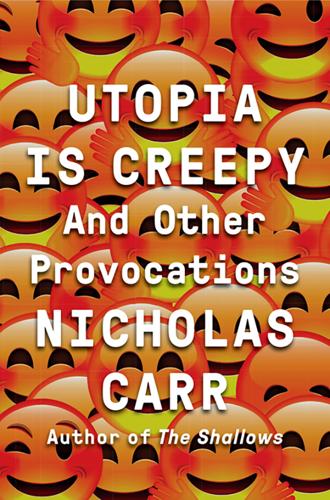
Utopia Is Creepy: And Other Provocations
by
Nicholas Carr
Published 5 Sep 2016
As ideas circulated through Europe and across the Atlantic during the eighteenth century, propelled by the technologies of the printing press and the post office, thinkers like Voltaire, Rousseau, and Thomas Jefferson came to see themselves as citizens of a Republic of Letters, a freethinking meritocracy that transcended national borders. It was a time of great intellectual fervor and ferment, but the Republic of Letters was “democratic only in principle,” Darnton pointed out in an essay in the New York Review of Books: “In practice, it was dominated by the wellborn and the rich.” With the internet, we could at long last rectify that inequity.
…
With the internet, we could at long last rectify that inequity. By putting digital copies of works online, Darnton has argued, the collections of the country’s great libraries could be made available to anyone with a computer and a link to the network. We could create a “Digital Republic of Letters” that would be truly free and open and democratic. The DPLA would allow us to “realize the Enlightenment ideals on which our country was founded.” HARVARD’S BERKMAN CENTER for Internet and Society accepted Darnton’s challenge. It announced late in 2010 that it would lead an effort to build the DPLA and turn the Enlightenment dream into an Information Age reality.
…
,” 121 Cai Lun, 286–87, 291 candlelight, 229–30 capitalism, 83–85 Case against Perfection, The (Sandel), 340 Case of Emily V., The (Oatley), 248 cassette tape, 121, 124 CCTV cameras, 52 CDs (compact disks), 42, 123–24, 293 cell phones, 52, 80, 233 censorship: in China, 283 free flow of information vs., 191 Centers for Disease Control and Prevention, 304 centrifugal force, 67 centripetal force, 66 Chambers, John, 134 Chen, Steve, 29 Chief Officers of State Library Agencies, 272 Chin, Denny, 269, 272 China, censored searches in, 283 Christian, Rebecca, 80 citation, allusion vs., 87–88 Clash, 63–64 classical music, 43–44 Claude Glass, 131–32 Clinton, Bill, 315 Clinton, Hillary, 314, 315, 317–18 clocks, changes wrought by, 235–36 clones, virtual, 26–27 cloud computing programs, 264, 283 cloud storage, 163, 168, 185, 225 physical archives vs., 326 CNET, 55 Coachella festival, 126 Coca-Cola, marketing of, 53–54 cocaine, 262 cochlear implants, 332 cognitive bias, 321 cognitive control, 96 cognitive function: effect of internet on, 199–200, 231–42 effect of video games on, 93–97 “flow” state in, 297 memory and, 98–99 neuroengineering of, 332 reading and, 248–52 cognitive surplus, 59–60 avoidance of, 74 Coleridge, Samuel Taylor, 251 Collaborative Consumption, 84–85, 148 Columbia Records, 43–44 commercialism: anticonsumerism and, 83–85 culture transformed by, xvii–xxii, 3, 9, 150, 177, 198, 214–15 in innovation, 172 of libraries, 270–71 media as tool of, 106, 213, 240, 244–45, 257–58, 320 in virtuality, 25–27, 72 commodes, high-tech, 23–24 communication: between computers, 167 computer vs. human, 152–54 evolution of, 53 loneliness and, 159 mass, 67–68 speed of, 223, 320 thought-sharing in, 214–15 Communist Manifesto (Marx and Engles), 308 “Complete Control,” 63–64 Computer Power and Human Reason (Weizenbaum), 236 computers: author’s early involvement with, xix–xi benefits and limitations of, 322–23 in education, 134 effect on paper consumption of, 287–88 evolution of, xix–x, 165 future gothic scenarios for, 112–15 human hybridization with, 37–38, 332 human partnership with, 321–24 as impediment to knowledge perception, 303–4 minds uploaded to, 69 revivification through, 69–70 written word vs., 325–28 concentration, diffusion of, 231–33, 236–37 Confession d’un Enfant du Siècle, La (Musset), xxiii Congress, U.S., 275–77 consumer choice, 44–45 Consumer Electronics Show (CES), 32, 56 consumerism: counterculture co-opted by, 72 distraction and, 65 media as tool of, 106, 132, 219 consumption, self-realization vs., 64–65 contemplation, 241, 246 through work, 298–99 conversation, computer streaming of, 152–54 CopyBot controversy, 25–27 copyright laws: history of, 275–76 in online library controversies, 269–71, 275–78, 283 in virtual world, 25–27 Corporate Communalists, 83 corporate control, through self-tracking, 163–65 correspondence courses, 133–34 cosmetic surgery, 331, 334 Costeja González, Mario, 190–92, 194 Coupland, Douglas, 102, 103 Courant, Paul, 270, 272 courtesy: decline of, 157 inefficiency of, 152–54 Cowen, Tyler, 116 Crawford, Matthew, 265 creativity, 49, 64 before the virtual world, 60–61 economics of, 8–9 in music, 44–45, 294 stifled by iPad, 76–78 see also innovation “crisis of control,” 188–89 CRISPR, 334–35 crowdsourcing, 37 Cruz, Ted, 314 cultural memory, archiving of, 325–28 cutouts (remaindered record albums), 122 CyberLover, 55 cybernetics, 37–38, 214 cyberpunk, 113 cyberspace, xvii, 127 early idealism of, 85 “Cyborg Manifesto” (Haraway), 168–69 cyborgs, 131 cynicism, 158 Daedalus, 336, 340 Darnton, Robert, 270–75, 278 DARPA, 332 Dash Express, 56 data-mining, 186, 212, 255–59 data-protection agencies, 190–91 Data Protection Directive, 191, 193 Davidson, Cathy, 94 Davies, Alex, 195 Davies, William, 214–15 Dean, Jeff, 137 death, as hardware failure, 115 Declaration of Independence, 278, 325 “Declaration of the Independence of Cyberspace” (Barlow), 85 deep reading, 241 deletionists, 18–20, 58 democratization, xvi, xviii, 28, 86, 89, 115, 208, 271 internet perceived as tool for, 319–20 depression, 304 Derry, N.H., 296–97 Descartes, René, 301, 330 Dewey, John, 304 “digital dualism,” 129 “digital lifestyle,” 32–33 digital memory, 327 digital preservation, 325–28 Digital Public Library of America (DPLA), 268, 271–78 “Digital Republic of Letters,” 271 discovery, adventure of, 13–15 Disenchanted Night (Schivelbusch), 229 displaced agency, 265 distraction, xix, 14, 316 in consumerism, 65 video games and, 19 diversity, 65 DNA, 69–70, 334–35 Doctorow, Cory, 76–77 “Does the ‘New Economy’ Measure Up to the Great Inventions of the Past?”
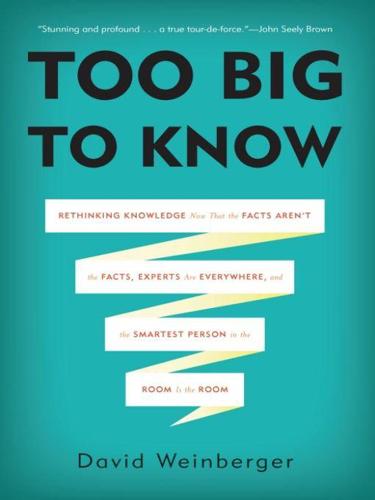
Too Big to Know: Rethinking Knowledge Now That the Facts Aren't the Facts, Experts Are Everywhere, and the Smartest Person in the Room Is the Room
by
David Weinberger
Published 14 Jul 2011
We clustered experts into think tanks and academic departments because we recognized that they’re smarter when together. In the eighteenth century, the great Western thinkers constituted what they called a “Republic of Letters,” in which they shared their ideas in correspondence, arguing back and forth at the speed of ponies and sailing ships. Even in ancient Greece, where the idea of knowledge was invented, the most famous thinker reached toward knowledge exclusively through dialogue with others. But there used to be a natural size to such networks. Few people were admitted to the Republic of Letters, and it really helped to be a leisured white man. University departments are small enclaves. Books and then radio and TV are one-way media, and only a small group of people get to broadcast through them.
…
Technodeterminism is no different for those who think that the Internet inevitably makes us stupid—rewiring our brains, as Nicholas Carr argues. Anti-technodeterminists such as the sociologist Eszter Hargittai and the social media researcher danah boyd point to the ways our social class, age, and subculture affect how we use the Internet and what it means to us. To some, the Net may be an electronic Republic of Letters, but others feel excluded because they don’t have the technical skills, the free time, or the aggressive personality so many Net forums favor. For entire countries, the Net is not an open marketplace of ideas so much as a source of carefully controlled propaganda. On the other hand, there are some basic elements of the Net experience shared by almost anyone who encounters it through a Web browser.
…
See also Books and book publishing Paper-based tools Parenting experts Patent Office, US PatientsLikeMe.com Pavement performance Peer-review journals Perception, facts and Permission-free knowledge Philosophy defining and quantifying knowledge information overload reality unresolved knowledge Pinker, Steven Planetary Skin initiative Plato PLoS One online journal Pogue, David Polio vaccine Politics Politifact.com Popper, Karl Population growth, Malthusian theory of Pornography Postmodernism Pragmatism PressThink.org Primary Insight Principles of Geology (Lyell) Prize4Life Protein folding ProteomeCommons.org Pseudo-science Public Library of Science (PLoS) Punchcard data Pyramid, knowledge Pyramid of organizational efficiency Quora Racial/ethnic identity Ramanujan, Srinivasa RAND Corporation Random Hacks of Kindness Rauscher, Francis Raymond, Eric Reagan, Ronald Reality Reason as the path to truth and knowledge critical debate on unresolved knowledge Reliability Repositories, open access Republic of Letters Republican Party Republic.com (Sunstein) Revolution in the Middle East Rheingold, Howard Richards, Ellen Swallow Riesman, David Robustness “The Rock” (Eliot) Rogers, William Rorty, Richard Rosen, Jay Roskam, Peter Rushkoff, Douglas Russia: Dogger Bank Incident Salk, Jonas Sanger, Larry Schmidt, Michael School shootings Science amateurs in crowdsourcing expertise failures in goals of hyperlinked inflation of scientific studies interdisciplinary approaches media relations Net-based inquiry open filtering journal articles open-notebook overgeneration of scientific facts philosophical and professional differences among scientists public and private realms scientific journals transformation of scientific knowledge Science at Creative Commons Science journal Scientific journals Scientific management Scientific method Self-interest: fact-based knowledge Semantic Web Seneca Sensory overload Sexual behavior The Shallows (Carr) Shapiro, Jesse Shared experiences Shilts, Randy Shirky, Clay Shoemaker, Carolyn Simplicity in scientific thought Simulation of physical interactions Slashdot.com Sloan Digital Sky Survey Smart mobs “Smarter planet” initiative Smith, Arfon Smith, Richard Soccer Social conformity Social networks crowdsourcing expertise Middle East revolutions pooling expertise scaling social filtering Social policy: social role of facts Social reform Dickens’s antipathy to fact-based knowledge global statistical support for Bentham’s ideas Social tools: information overload Society of Professional Journalists Socrates Software defaults Software development, contests for Sotomayor, Sonia Source transparency Space Shuttle disaster Spiro, Mary Sports Sprinkle, Annie Standpoint transparency Statistics emergence of Hunch.com Stopping points for knowledge The Structure of Scientific Revolutions (Kuhn) Stupidity, Net increasing Sub-networks Suel, Gurol Sunlight Foundation Sunstein, Cass Surowiecki, James Systems biology Tag cloud Tagging Tatalias, Jean Taylor, Frederick Wilson TechCamps Technodeterminism Technology easing information overload Technorati.com Television, homophily and Temptation of hyperlinks Think tanks Thoreau, Henry David The Tipping Point (Gladwell) Todd, Mac Toffler, Alvin TopCopder Topic-based expertise Torvalds, Linus Traditional knowledge Tranche Transparency hyperlinks contributing to objectivity and of the Net Open Government Initiative Transparency and Open Government project Triangular knowledge Trillin, Calvin Trust: reliability of information Trust-through-authority system Truth elements of knowledge reason as the path to value of networked knowledge Twitter Tyme, Mae Unnailing facts Updike, John USAID UsefulChem notebook Vaccinations Verizon Vietnam Virginia Polytechnic Institute and State University Wales, Jimmy Wallace, Alfred Russel Walter, Skip Washington Post Watson, James Welch, Jack Welfare The WELL (The Whole Earth’Lectronic Link) Whole Earth Catalog Wikipedia editorial policy LA Times wikitorial experiment policymaking Virginia Tech shootings Wikswo, John Wilbanks, John Wired magazine The Wisdom of Crowds (Surowiecki) Wise crowds Wittgenstein, Ludwig Wolfram, Stephen WolframAlpha.com World Bank World Cup World War I Wurman, Richard Saul Wycliffe, John York, Jillian YourEncore Zappa, Frank Zeleny, Milan Zettabyte Zittrain, Jonathan Zuckerman, Ethan a I’m leaving this as an unsupported idea because it’s not the point of this book.
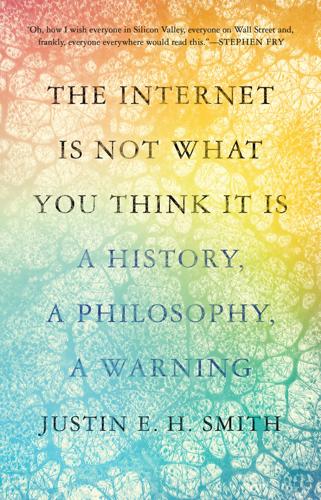
The Internet Is Not What You Think It Is: A History, a Philosophy, a Warning
by
Justin E. H. Smith
Published 22 Mar 2022
While of course everyone involved in epistolary exchange in early modern Europe was aware of the lag between dispatch and receipt, a letter, from Bavaria to Paris, from Hannover to London, nonetheless seemed to speak directly across distances, and in the absence of telegraphs or text messages that could move ahead of the letter and circumvent the lag of its transit, it could not have seemed that the letter was in any regard temporally defective, any more than we find the light of a star inadequate when we are reminded that it was emitted eons before it arrived to earth. Nor is the Republic of Letters as new as its participants imagined it to be. All the major ancient empires of Europe and Asia had a system for the transmission of letters by courier, though the Roman Empire is often held to have initiated the first mass-scale postal service. From the Roman cursus publicus through the medieval Mongolian yam to the early American Pony Express, the development of a system for delivering messages went hand in hand with the construction of passable roads across the extent of empires.
…
His use of this metaphor is grounded in a metaphysics of time that holds that what is real is simultaneous, while temporal flow is something produced by conscious experience. We do not have to share in this metaphysics in order to feel the same veridical force in the parallel metaphor concerning technology: prehistoric exchange networks, the Roman postal system, the Republic of Letters, the optical telegraph, were all pregnant with the internet. Over the past decades there has been a significant shift in the way the public understands the idea of historical progress, and the way the pivotal revolutions in human history, notably the agricultural and the industrial revolutions, functioned as triggers of sudden and significant progress.
…
W., 2–5, 22, 26, 45–46, 63, 93, 102–7, 109, 111–20, 129–33, 136–38, 147, 157, 160–62 Leonardo da Vinci, 169 Leopold, Aldo, 39 lichen, 69–70 LinkedIn, 122 Linus, Franciscus, 148 Llull, Ramon, 4, 147 Lotze, Hermann, 25 Lovelace, Ada, 104, 130–31, 134–39 Lucian of Samosata, 61, 65 Luddites, 5–6 Lumière Brothers, 31 Lunch, Lydia, 47 Malebranche, Nicolas, 116 Malmesbury, William of, 101 Manson, Marilyn, 47 Marcus Aurelius, 60, 126–27, 140–42 Marx, Karl, 50 memes, 40, 89–90, 142 memory, 33–34 Menabrea, Luigi, 131–35, 139 Mendel, Gregor, 70 Mesmer, Franz, 62, 74 metaphor, 24, 30, 51, 60, 72, 80, 92, 126, 130, 138–46, 148–49 metrics, 40 mindfulness, 36 Modi, Narendra, 49 More, Thomas, 125, 154 Münster, Sebastian, 154 Musk, Elon, 90 Nabokov, Vladimir, 18 Newton, Isaac, 63, 70 normies, 2 Orbán, Viktor, 49 Ortelius, Abraham, 159 Pāṇini, 34–35 Paracelsus (Theophrastus Bombastus von Hohenheim), 74 Pascal, Blaise, 4, 102, 118, 136, 153 perennialism, 12 Perrault, Charles, 121 Peter the Great, Tsar, 160 phenomenology, 6, 8, 17, 24, 27, 29, 96, 156 Plato, 91, 114 Pliny the Elder, 75 Pony Express, 76 “proof of concept,” 61, 78, 125 Proust, Marcel, 32 QAnon, 44–45 Ramelli, Agostino, 168–71 Ramus, Petrus, 157 Renfrew, Colin, 77 Republic of Letters, 76 ResearchGate, 122 rhizomes, 67, 80 Ricoeur, Paul, 149 Rorario, Girolamo, 95 Russell, Bertrand, 3 Sallust, 172–73 Scharf, Caleb, 94 Schiller, Friedrich, 45 Schneider, Susan, 93–95 Schwitzgebel, Eric, 97 Scientific Revolution, 82, 157 Scott, James C., 82 Searle, John, 107–8 semaphore, optical, 73–74, 80 Seress, Rezső, 47 Serres, Michel, 14 Shakespeare, William, 153 Shapin, Steven, 82 Simone, Nina, 47 simulation argument, the, 43, 89–93, 99–100, 164 Siri (voice-activated search), 28, 101–3 Skype, 164 slime molds, 86–88 Smith, Brian Cantwell.
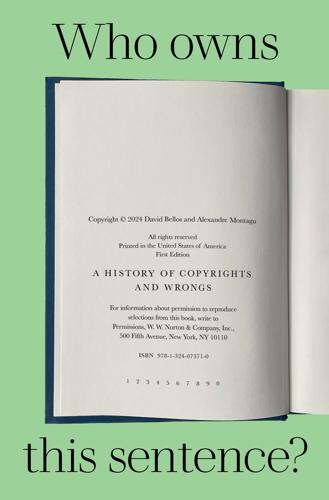
Who Owns This Sentence?: A History of Copyrights and Wrongs
by
David Bellos
and
Alexandre Montagu
Published 23 Jan 2024
At the venerable age of seventy-five, Edward Young penned an open letter to the novelist Samuel Richardson, the author of Pamela and Clarissa, to propose a new idea of the origin of original compositions, and the word that he used was genius. He gave no formal definition to the idea of “original composition” but only asked his addressee to be content “with what all must allow, that some compositions are more so than others … and extend the Republic of letters and add to its dominion”. But he made a striking and novel claim about where and how those “more original” compositions arose: An original may be said to be of a vegetable nature; it rises spontaneously from the vital root of genius; it grows and is not made … The source of human creativity, he argued, lay not in any external agency but in a special faculty possessed by some though not all human beings.
…
Out of those conditions, the U.S. developed a powerful printing industry, succeeded in spreading education to a growing and diverse population, and fostered a rich and varied literature of its own. America’s book-piratical regime did the rising nation no harm. American law held that only original works could be registered for copyright protection, harking back to the eighteenth-century claims of Edward Young for the rights of geniuses who “extend the Republic of letters and add to its dominion”. The difficulty with this principle is to decide what is sufficiently unoriginal to fall outside the scope of copyright law, but in 1845 a court found it had to decide the issue. A Boston schoolmaster called Benjamin Gould had revised and improved Adam’s Latin Grammar, a standard work first published in Edinburgh in 1772.104 C.D.
…
Indeed, a search engine may be more transformative than a parody because a search engine provides an entirely new use for the original work, while a parody typically has the same entertainment purpose as the original work.224 “Original works” in this contemporary context does not refer to writings that “extend the Republic of letters and add to its dominion”, as Edward Young maintained, but to two-dimensional photographic images of naked ladies. “New work” refers not to creations which “leaping beyond past and present, illuminate the future” but to reduced-size low-resolution reproductions of the same nudes. The contorted nature of the ruling stems from the need to remain within the verbal bounds of laws devised long ago while adjudicating disputes those laws were not designed to resolve.

Age of Anger: A History of the Present
by
Pankaj Mishra
Published 26 Jan 2017
Each of these men, Tocqueville claimed, ‘felt hindered daily in his fortune, person, well-being, or pride by some old law, some ancient political custom, some relic of the old powers’. Through their friendships, shared interests and resources, they formed a network – the first of its kind anywhere in the world. A typical representative of the new Republic of Letters was Voltaire, the son of a lawyer. As a quick-witted young man, he had contemptuously won an argument with an aristocrat, and then found himself publicly flogged by the latter’s lackeys, and forced to flee to England in 1726. He soon became an Anglo-maniac, adoring his refuge as the shining example of a commercial society that enshrined individual liberty.
…
She gave Diderot a lifetime sinecure by purchasing his library for a handsome sum. In the very first year of her reign, at the age of thirty-four, she asked D’Alembert to become the tutor of her heir, and opened a mutually flattering correspondence with Voltaire, who at nearly seventy was the patriarch of the European republic of letters. Voltaire was soon turned, with Catherine’s encouragement, into a patron saint for the secular Russian aristocracy. Voltairianism, vaguely signifying rationalism, scepticism and reformism, became her official ideology. Almost all of Voltaire was translated into Russian; no library was deemed complete if it did not contain a collection of Voltaire’s works in the original French.
…
But the Enlightenment philosophes had already shown, in their blind adherence to Catherine, how reason could degenerate into dogma and new, more extensive forms of domination: authoritarian state structures, violent top-down manipulation of human affairs (often couched in terms of humanitarian concern) and indifference to suffering. The trahison des clercs of the Enlightenment philosophes seems to have helped Rousseau identify a whole schema of modernity in which power flows unequally to a networked elite, especially a smug Republic of Letters that actively accentuates social differences at home while pursuing fantasies of universal transformation abroad. Rousseau of course never had much time for enlightened absolutism. He also had the advantage of knowing that the age of the masses was at hand. ‘We are approaching a state of crisis and the age of revolutions,’ he wrote in 1762 in Émile.

Human Frontiers: The Future of Big Ideas in an Age of Small Thinking
by
Michael Bhaskar
Published 2 Nov 2021
Steadily this ecosystem gave rise to the ‘first knowledge economy’, one built on a culture of ideas creation. Not coincidentally, this was the first time an economy hit escape velocity.6 In the words of economic historian Joel Mokyr, this was a ‘culture of growth’.7 A new proto-scientific culture spanned Europe: a Republic of Letters, an ‘invisible college’ and transnational market for ideas, where leading thinkers created a buzzing epistolary network devoted to discovery, exploration, thought and experiment. Led by path-breaking cultural entrepreneurs – people like the statesman and natural philosopher Francis Bacon, who encouraged a new empirical, improving attitude – the point of this ‘college’ was to proffer something original and unknown.
…
The rise of ethno-nationalism in America, Turkey, Russia, India, China – almost everywhere, in fact – spurs technonationalism, which in turn threatens to splinter the common standards necessary for scalable innovation. Cross-border collaborations, on films or businesses or research, become less likely. Tariffs diminish trade. Cultural exports are especially limited. Horizons shrink. A dangerous conflagration becomes more likely. A chest-beating nationalism suffocates the twenty-first century Republic of Letters. As nation states cement their place in the geopolitical firmament, they are unlikely to answer the kind of transnational questions discussed in this book. And over the long course of the century, fundamentalisms of different stripes will continue to flourish. Demographic trends favour the most extreme forms of religion against more secular groups: the more extreme your religious views, the more children you have.90 If history really is demography, it doesn't bode well.
…
The funnel down to that small band has been widened to (almost) encompass the globe; the winnowing effects of reaching the frontier will still leave more and more room for more painters and quantum theorists, inventors and entrepreneurs.55 Consider that on the cusp of the French Revolution, the Republic of Letters at its maximal extent formed an educated epistolary network of scholars, poets, antiquaries, librarians, natural philosophers, bureaucrats, courtiers, diplomats, lawyers and enlightened clergy of some thirty thousand.56 Already that reflected a phenomenal increase on the sixteenth century, when it numbered only around 1200.57 But it would not be unreasonable to suppose that today's global network might encompass some 30 million individuals, just a fraction of the world's population, but a thousand-fold increase on the late eighteenth century, and vastly more again on earlier times.58 A study of exceptionally talented students in the International Mathematics Olympiad showed first how important these individuals were for coming up with new ideas: achievements in the field of maths were correlated with achievements at the Olympiad.
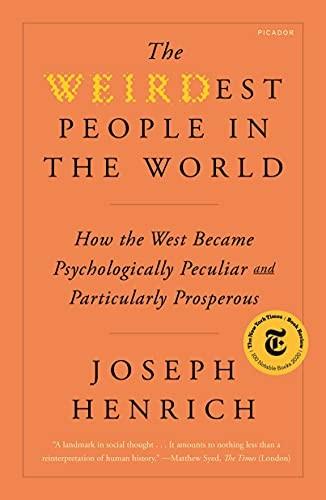
The WEIRDest People in the World: How the West Became Psychologically Peculiar and Particularly Prosperous
by
Joseph Henrich
Published 7 Sep 2020
They also provided homes and some autonomy for intellectuals of many stripes—including Isaac Newton and Daniel Bernoulli—which created competition among the growing number of wealthy aristocrats who, after their own university education, wanted to surround themselves with leading thinkers and eventually scientists.41 By the 16th century, a mobile community of individualistic and analytically-oriented thinkers had begun to form a loose web called the Republic of Letters that networked much of western and central Europe. Members of this virtual community sent one another handwritten letters often carried on the wings of commerce or by postal services, which were both public and private. Intellectuals penned letters about their ideas to friends and colleagues as well as to other correspondents around Europe.
…
If you’re an inventor like James Watt, trying to troubleshoot a broken Newcomen steam engine owned by the University of Glasgow, it’s nice to be able to chat with Joseph Black about thermodynamics and then access Boulton’s staff of smiths and artisans. Illustrating the proliferation of knowledge societies from 1600 to 1800, Figure 13.4 shows that the number of knowledge societies, and specifically those focused on science and technology, grew especially rapidly after 1750.44 Making the case for the importance of the Republic of Letters and these proliferating knowledge societies, the renowned economic historian Joel Mokyr notes how communities evolved a set of social norms about freely sharing knowledge. The origins of these norms are best understood in light of the increasingly WEIRD psychology that had been evolving across Europe.
…
Kings and other elites, in Europe and throughout history, have tended to crack down on anyone with a disruptive new idea, technique, or invention that might shake up the existing power structure. In Europe, this problem was mitigated by a combination of political disunity—there were many competing states—and the relative cultural unity nurtured by the transnational networks woven by a variety of voluntary associations, including the Church, universities, guilds, and the Republic of Letters. This combination afforded innovators, intellectuals, and skilled artisans options that their counterparts elsewhere in the world usually lacked. Rebellious minds—whether individuals or entire groups—could escape oppression by moving to another patron, university, city, country, or continent.
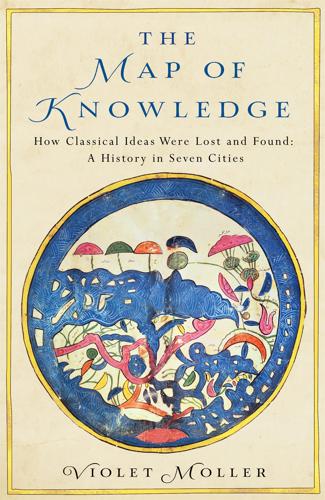
The Map of Knowledge: How Classical Ideas Were Lost and Found: A History in Seven Cities
by
Violet Moller
Published 21 Feb 2019
His print shop, first in San Agostino and later in the Merceria, became the intellectual heart of the city. Every day, an endless stream of scholars arrived to debate the latest issues – in Greek (there were fines for speaking any other language) – and to prepare texts for the press. The leading figures of the European ‘Republic of Letters’ all came to pay their respects: Erasmus arrived in January 1508, to oversee the publication of his Adages; the German humanist Johann Reuchlin visited a few years earlier, while Thomas Linacre came all the way from England. This did not make the Aldine Press an easy place to work. In 1514, the year before he died, Aldus wrote, ‘Apart from six hundred others, there are two things in particular which continually interrupt my work.
…
A thousand years later, the opposite is true. In Europe, education is widely available again, not to everyone, but there are schools, tutors, universities: a budding tradition of learning on offer to wealthy, interested young men – and a few women, too. They have the chance to become members of the growing ‘Republic of Letters’ and to contribute to the development of knowledge. Europe has emerged from a century of profound change. New worlds have been discovered, bursting with exotic plants and animals. Galleys laden with gold and silver are making their way back across the Atlantic, bringing untold wealth to Europe.
…
The rise in the use of vernacular languages did not change the fact that the universal language of the intellectual world was still Latin. Printing in Greek never took off in the way Aldus had hoped; there were simply not enough people who knew it to make it a viable proposition for most presses. The inhabitants of the Republic of Letters usually corresponded with each other in Latin, exchanging books and letters, arguing and collaborating via a growing network of postal systems. As the infrastructure of bookselling evolved, it became easier to get hold of texts, helping the exchange of ideas. As the (relatively) stable printed page gradually replaced the fragile manuscript, knowledge became standardized and more accurate.
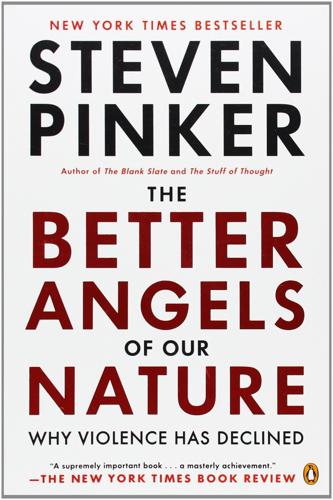
The Better Angels of Our Nature: Why Violence Has Declined
by
Steven Pinker
Published 24 Sep 2012
Whether or not novels in general, or epistolary novels in particular, were the critical genre in expanding empathy, the explosion of reading may have contributed to the Humanitarian Revolution by getting people into the habit of straying from their parochial vantage points. And it may have contributed in a second way: by creating a hothouse for new ideas about moral values and the social order. THE REPUBLIC OF LETTERS AND ENLIGHTENMENT HUMANISM In David Lodge’s 1988 novel Small World, a professor explains why he believes that the elite university has become obsolete: Information is much more portable in the modern world than it used to be. So are people.... There are three things which have revolutionized academic life in the last twenty years . . . : jet travel, direct-dialing telephones and the Xerox machine....
…
And two centuries before they were written, the technologies of the day—the sailing ship, the printed book, and the postal service—had already made information and people portable. The result was the same: a global campus, a public sphere, or as it was called in the 17th and 18th centuries, the Republic of Letters. Any 21st-century reader who dips into intellectual history can’t help but be impressed by the blogosphere of the 18th. No sooner did a book appear than it would sell out, get reprinted, get translated into half a dozen languages, and spawn a flurry of commentary in pamphlets, correspondence, and additional books.
…
In hermetic isolation, all kinds of bizarre and toxic ideas can fester. Sunlight is the best disinfectant, and exposing a bad idea to the critical glare of other minds provides at least a chance that it will wither and die. Superstitions, dogmas, and legends ought to have a shorter half-life in a Republic of Letters, together with bad ideas about how to control crime or run a country. Setting fire to a person and seeing whether he burns is a dumb way to determine his guilt. Executing a woman for copulating with devils and turning them into cats is equally inane. And unless you are a hereditary absolutist monarch, you are unlikely to be persuaded that hereditary absolutist monarchy is the optimal form of government.
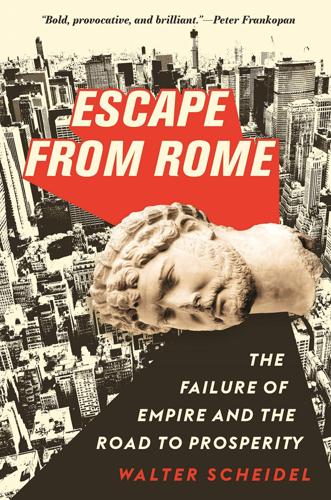
Escape From Rome: The Failure of Empire and the Road to Prosperity
by
Walter Scheidel
Published 14 Oct 2019
In the seventeenth century, the establishment of the Royal Society of London for Improving Natural Knowledge and the Académie royal des sciences in Paris for the first time created bodies dedicated to the autonomous study of the natural world by cohesive groups of scholars.9 Fragmentation between and within polities was coupled with a high degree of mobility among European intellectuals, both in person and even more so through communications. This connectivity greatly boosted the size of the market for ideas. Yet even in this arena, systemic competition played a central role: the transnational intellectual community famously known as the “Republic of Letters” transcended political fractures by creating a “competitive marketplace not only for ideas but also for the people who generated them in their struggle to gain recognition, fame, and patronage.” This market connected people with new ideas with potential customers who needed to be persuaded of the merits of these ideas.
…
If we follow those who ascribe a central role to the emergence of a European culture of knowledge and science and view it as being rooted in transnational exchange and competition, anything that assisted in this process would have been beneficial to transformative development. Thus, for Mokyr, Western Europe profited from “a disconnect between the size of the political unit and the intellectual community” because it created space for a Republic of Letters. The lack of such networks would have raised the cost of access to a transnational market of ideas and helped incumbents—defenders of entrenched tradition—fend off challengers.27 This relatively narrow perspective is bound to disappoint champions of the long-term legacy of Roman law or ancient political discourse.
…
Huff 2003: 133–39, 179, 251, and also 179–89, 317, and 339–45 for the role of universities in the rise of early modern science. Cf. also Lang 1997: 19. Exceptions: Mokyr 2017: 172–75. 8. Mokyr 2017: 169 (competition), 149–50 (innovations). See Hobson 2004 for the scope of borrowing. 9. H. F. Cohen 2015: 173–74. 10. Mokyr 2017: 175–76 (mobility); Mokyr 2007: 5–6 (marketplace); Mokyr 2017: 179–224 (Republic of Letters), 179 (quote), 181 (mechanism). I turn to China later in this chapter. 11. Mokyr 2007: 7–8; Mokyr 2017: 186, 189–91. Counterfactual: Mokyr 2007: 24 (quote); Mokyr 2017: 220–21. 12. Costs: Mokyr 2017: 215 and the epilogue in this volume. Vernacular: Mokyr 2007: 31. 13. See C. Murray 2003: 301–3 for an attempt at a census (see also 113–14, 158, 252, 297–98). 14.
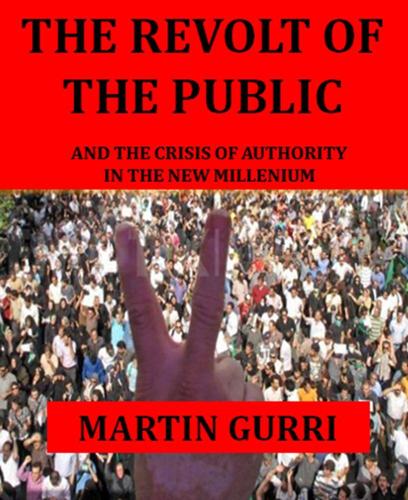
The Revolt of the Public and the Crisis of Authority in the New Millennium
by
Martin Gurri
Published 13 Nov 2018
Anyone paying attention will have noticed surprising similarities between the periwigged citizens of the Republic of Letters and our own networked public. Both were largely virtual, informal, spontaneous, networked rather than hierarchical, open to quality rather than accreditation. And it’s true: they resembled each other more than they did the intervening masses of the industrial age. Whether this resemblance is an optical illusion or reflects some underlying causal link is a worthy subject for study and reflection – but it isn’t part of my story. I’m more interested in considering the one significant difference between the two: the Republic of Letters, in the end, was an elite club, an intellectual Olympus far removed from the sight of Ortega’s particularized humanity.
…
When we come across despairing words about a “phantom public” which “cannot find itself,” we should recall that this was the political landscape confronting Lippmann and Dewey. The two men knew that in an earlier time the public had shown a muscular independence. The public of the eighteenth century had been composed of networks of persons with knowledge of science and the arts, connected virtually, by correspondence. They called themselves, informally, the Republic of Letters, and their labors proved almost indecently fruitful: they helped popularize the scientific revolution, articulated the principles of liberal democracy, and inspired political revolutions in America and France. In Dewey’s “age of the machine,” that assertive public appeared as extinct as the fashion for powdered wigs.
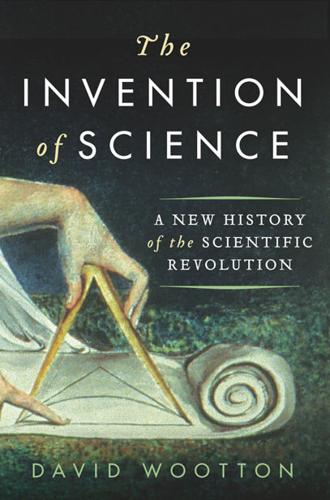
The Invention of Science: A New History of the Scientific Revolution
by
David Wootton
Published 7 Dec 2015
Browne, even while dismissing testimony as relevant only to morality, rhetoric, law and history, and irrelevant to natural philosophy, summed up the basic principle: ‘in Law both Civill and Divine, that is only esteemed legitimum testimonium, or a legall testimony, which receives comprobation from the mouths of at least two witnesses; and that not onely for prevention of calumny, but assurance against mistake.’124 His problem with admitting testimony to natural philosophy was that it would then be necessary to accept what he called ‘aggregated testimony’ – in other words, the indirect experience of people who simply voice what everyone believes to be the case. He could not imagine turning the republic of letters into a vast law court. Thus, before the invention of the fact an appeal to testimony was seen as an appeal to authority (even Digby, writing in 1658, had thought of eyewitnesses as authorities): witnesses, we might say, were thought of as character witnesses, not as eyewitnesses. After the fact, eyewitness testimony became a form of virtual witnessing, hence Boyle’s insistence that he did not appeal ‘to other Writers as to Judges, but as to Witnesses’.
…
Pascal in 1651 insisted that scientists should have ‘complete liberty’.137 The epigraph to Salusbury’s Mathematical Collections (1661) is ‘inter nullos magis quam inter PHILOSOPHOS esse debet aequa LIBERTAS’ (‘between none more than philosophers ought there to be an equal liberty’). There is something inherently egalitarian and liberating about the new inter-related worlds of the book and of the fact. Indeed, we may say that the new science aspired to the creation of that social sphere which was idealized in the seventeenth century as ‘the republic of letters’ and which the eighteenth century was to label ‘civil society’.138 Bruno Latour, in an important essay entitled ‘Visualization and Cognition: Drawing Things Together’, which originally appeared in 1986, claimed that the printing press made facts ‘harder’; before printing, facts were too soft to be reliable.139 What made the Scientific Revolution, Latour argues, is not the experimental method, or commercial society – both had been around for centuries – but the printing press, which turned private information into public knowledge, private experience into communal experience.
…
Chicago: University of Chicago Press, 1994: 282–9. ———. ‘The History of Emergences: The Emergence of Probability’. Isis 98: 801–8 (2007). ———. ‘History of Science in an Elegiac Mode: E. A. Burtt’s Metaphysical Foundations of Modern Physical Science Revisited’. Isis 82 (1991): 522–31. ———. ‘The Ideal and Reality of the Republic of Letters in the Enlightenment’. Science in Context 4 (1991): 367–86. ———. ‘The Language of Strange Facts in Early Modern Science’. In Inscribing Science: Scientific Texts and the Materiality of Communication. Ed. T Lenoir. Stanford: Stanford University Press, 1997: 20–38. ———. ‘Marvelous Facts and Miraculous Evidence in Early-Modern Europe’.
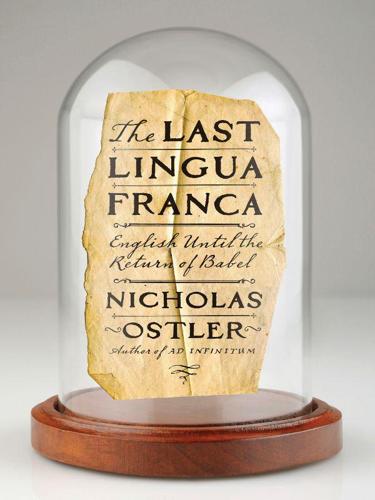
The Last Lingua Franca: English Until the Return of Babel
by
Nicholas Ostler
Published 23 Nov 2010
Instead, innovative thinkers such as Petrarch went back to the Latin classics of the ancient world to seek inspiration, and critics such as Lorenzo Valla sought out textual evidence of how best to express ideas in the classical language. Although still actively deployed in the Roman Church and all its works, Latin was no longer exclusively Roman, but had become the language rather of a European “republic of letters.” Copernicus, Erasmus, Kepler, Galileo, Newton, and Descartes all published most of their key works in Latin. For the last time (as it turned out), Latin had found a new and influential community to serve as lingua-franca. * Admittedly, this usually happens with the collusion, witting or unwitting, of their parents
…
More recently, it has been contended that the clear association of Sanskrit with Brahman possessiveness is a result of the switch to vernaculars rather than a provocation for it, a kind of defensive drawing-in, entirely comparable with the way that the Roman Catholic Church became distinctively associated with Latin after the language was abandoned by a wider republic of letters in Europe.29 But the two approaches are in fact quite compatible, especially if one accepts the likely dynamics of reaction (by Brahmans) in the face of social change. To neutralize the parallel with the Church’s role in the decline of Latin— just as the Brahmans had their early association with Sanskrit— the Catholic Church had (in the second half of the First millennium AD) played a vital role in the spread of Latin across Europe, giving the prime motive for using it until it became useful for secular communication.* Whatever the precise order of events (which probably differed in the many different language areas), Brahman power declined along with the use of Sanskrit.
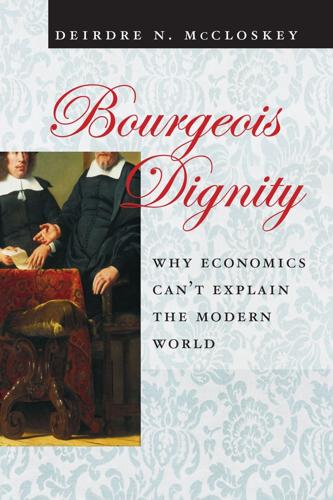
Bourgeois Dignity: Why Economics Can't Explain the Modern World
by
Deirdre N. McCloskey
Published 15 Nov 2011
But from the seventeenth century onward, and especially after 1800, the political and social ideas of liberalism shockingly extended the technology, through equality of liberty and dignity in Holland and Britain and Belgium and above all in the United States, and then beyond. The economic historian Joel Mokyr in a new book chronicles the improvements in communication and the welcoming of novelties that made for a freewheeling and largely egalitarian Republic of Letters after 1500, and especially after 1600.3 The outcome of such rhetorical developments was a technological explosion, especially after 1800, that radically improved on Europe’s old overseas borrowings. The Great Enrichment is not to be explained, that is, by material matters of race, class, gender, power, climate, culture, religion, genetics, geography, institutions, or nationality.
…
The merchant was portrayed in early modern paintings with ink-stained fingers, since a merchant had to be literate in his account books and had to be a writer of letters giving and getting economically valuable information. The bourgeoisie had long used written letters as news, of price currents or whatever; and letter-carrying improved in the sixteenth and especially the seventeenth centuries. The improved post created a Republic of Letters, in which a remote Benjamin Franklin could enter into scientific correspondence with Julien-David LeRoy in France. It was combined with the grammar-school movement in places like England and France and Poland, which allowed the spread of Latin as a lingua franca beyond the high clergy. The uncontrolled printing presses in Europe eventually made for “news,” on the model of the merchant’s letter.
…
See also job protection Mirabeau, Comte de: on happiness, 683n5 Mirowski, Philip: neoliberalism, 660n1 Mises, Ludwig von: Austrian economics, 360; entangling, 55; ideological change, 417; and Schumpeter, 646; trade and the poor, 697n3 Mishra, Pankaj: Great Enrichment, 55; imperialism, 88 Mitch, David: acknowledged, xxxviii Mitchell, Douglas: acknowledged, xli; and Richard McKeon, 646 Mithen, Steven: early trade, 106, 655n20 Moav, Omer: farmer victims, 656n21 Moberg, Vilhelm: Swedish poverty, 9 Moby Dick (Melville): bourgeoisie, 591 Modi, Narendra: liberalization, 76; toilet policy, 27 Mokyr, Joel: acknowledged, xxxviii, xxxix, 652n18; on Allen, 652n26; anesthesia in GDP, 77; Baconianism, 506; betterment by lower classes, 434; British human capital, 473; causes of betterment, 105; critique of McCloskey, 409; Dutch performance in eighteenth century, 408; elite, 525; elite as cause, xxviii–xxix; fragmentation vs. vested interests, 396; gentleman, 226; Gujin Tushu Jicheng (Chinese encyclopedia), 388; ideational approach to economic history, 94, 511; ideological change, 231, 232, 471; Industrial Enlightenment, 422; institutions, 115; on Irish famine, 655n8; Jews and betterment, 427, 428; neo-institutionalism, 122; patents during Industrial Revolution, 133; potatoes in Ireland, 16, 652n29; predictability of technology, 107; pronunciation of name, 651n3; psychology vs. sociology, 473; Republic of letters, from liberalism, xv, 392; rule of law, 112; science and economy, 462, 505, 506, 517; some force of institutions, 664n7; technical elite as cause, xxvii, xxviii; timing of Great Enrichment, 534; usefulness, 95, 285, 286; usefulness, Chinese, 440; why betterment continues, 536 Mondragón: cooperative, 568 monopoly: bourgeoisie seeks, 174, 460, 585, 599; Chinese state’s on overseas trade, 399; Edison, 175; guilds as, 462; of ideas, Venetian, 460; Indiana blue laws as, 464; natural, 143; by patent, Watt, 175; state as guardian against, 175; state as source of, 175; unions and, 56; Watt’s patent, 418.
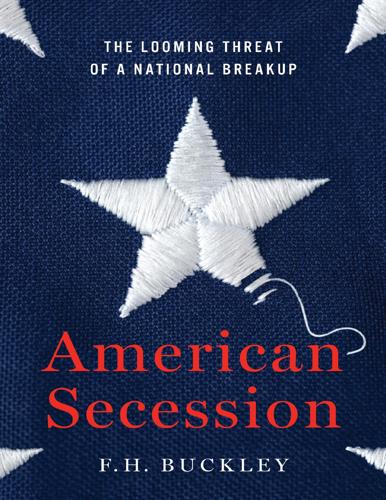
American Secession: The Looming Threat of a National Breakup
by
F. H. Buckley
Published 14 Jan 2020
The Friends of David Hume What the right size for a state might be was debated by three of the eighteenth century’s greatest thinkers. David Hume argued for bigness, while Montesquieu (Charles-Louis de Secondat) and Jean-Jacques Rousseau made the case for smallness. In the eighteenth century’s Republic of Letters, all three knew each other. With Montesquieu, Hume carried on a respectful correspondence. With Rousseau, Hume had a deep friendship that turned into the nastiest of personal squabbles. David Hume was a man of his time, and his time was the Enlightenment. He was quite without political or religious enthusiasms, and his History of England annoyed British Whigs with his sympathy for the Stuart monarchs.
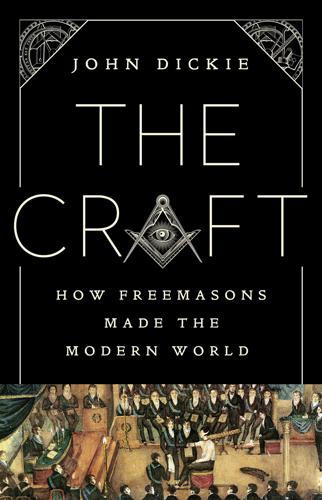
The Craft: How Freemasons Made the Modern World
by
John Dickie
Published 3 Aug 2020
J.M. Shaftesley and M. Rosenbaum, ‘Jews in English Regular Freemasonry, 1717–1860’, Transactions & Miscellanies (Jewish Historical Society of England), 25, 1973–5. J.M. Shaftesley, ‘Jews in English Freemasonry in the 18th and 19th Centuries’, AQC, 92, 1979. D.S. Shields, ‘Franklin and the republic of letters’, in C. Mulford (ed.), The Cambridge Companion to Benjamin Franklin, Cambridge, 2008. Ev. Ph. Shirley, ‘Remarkable Clubs and Societies, 1748’, Notes and Queries, 27 July 1878. For names of strange clubs, p. 65. L.B. Smith, ‘Wharton, Philip James, duke of Wharton and Jacobite duke of Northumberland (1698–1731)’, Oxford Dictionary of National Biography, Oxford, 2008.
…
Recent French Revolutionary Historiography’, French Historical Studies, 23 (1), 2000. C. Francovich, ‘Balsamo, Giuseppe’, Dizionario biografico degli Italiani, vol. 5, Rome, 1963. P. Friedland, Seeing Justice Done: The Age of Spectacular Capital Punishment in France, Oxford, 2012. G. Giarrizzo, Massoneria e illuminismo, Venice, 1994. D. Goodman, The Republic of Letters: A Cultural History of the French Enlightenment, Ithaca, NY, 1994. On Guillotin’s Masonry, passim. R.F. Gould, The Concise History of Freemasonry, revised by F.J.W. Crowe, New York, 2007 (1920). R. Halévi, ‘Les origins intellectuelles de la Révolution française: de la Maçonnerie au Jacobinisme’, in É.
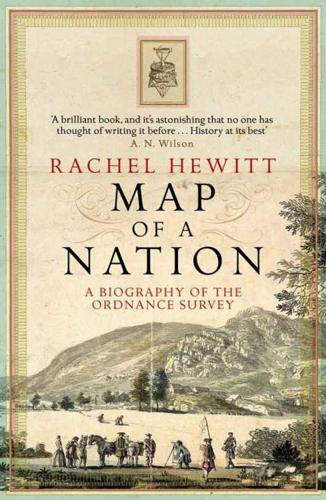
Map of a Nation: A Biography of the Ordnance Survey
by
Rachel Hewitt
Published 6 Jul 2011
Whilst hunched over his desk, pen in hand, he suffered a sudden seizure at nine o’clock in the evening. In the early hours of 1 July William Roy died, at the age of sixty-four. The news spread quickly throughout Britain’s military and scientific elite. Five days after his death The Times mourned that ‘the Republic of Letters will experience a great loss in the death of General Roy. As a draughtsman, his pencil was universally admired [and] he was a great favourite with his Majesty.’ This innovative, imaginative man, who had transformed the fields of military map-making and geodesy in Britain and appeared to have realised the Enlightenment’s ideal of creating a perfectly truthful image of the natural world, had died without seeing his life’s ambition realised: the creation of a complete, accurate, national survey.
…
MS 33272, f. 27, 1 June 1787. 79 He read his account Roy, 1785, p. 385. 80 incomparable Engineer World and Fashionable Advertiser, 5, 5 January 1787. 81 kissed the King’s hand Morning Herald, 1899, 25 November 1786. 82 our trusty and well-beloved Whitehall Evening Post, 5766, 21 September 1784. 83 ought not to hate one another Cited in de Beer, p. 111. 84 owing I suppose to the difficulty Joseph Banks to Cassini de Thury, Paris Observatory, D5-7, 4 June 1784. 85 fellow Labourers William Roy to Jean-Dominique Cassini, PO, D5-7, 3 December 1788. 86 some pains to investigate [Gen Roy’s] Remarks on a Paper [put into his majesties hands by the Duke of Marlborough], RS, DM4, f. 45, 1786/7. 87 The younger Cassini Charles Blagden to Joseph Banks, Fitzwilliam Museum, Cambridge, Perceval Collection H-191, 10 October 1783; cited in Martin and McConnell, p. 357. 88 charmed at the prospect Jean-Dominique Cassini to Charles Blagden, RS, DM4, f. 18, 29 May 1787. 89 this man is an electrical machine Jean-Dominique Cassini, cited in McConnell, p. 143. 90 In July 1787 Roy, 1790, p. 112. 91 But soon Roy had tamed the theodolite For a description of Roy’s methods, see Roy, 1787, 1790. 92 General Roy est à quelque distance Charles Blagden to Jean-Dominique Cassini, RS, DM4, f. 22, 20 August 1787. 93 Blagden suggested to Roy Charles Blagden to Jean-Dominique Cassini, RS, DM4, f. 22, 20 August 1787. 94 Roy even tried to pass it off as his own William Roy to Jean-Dominique Cassini, PO, D5-7, 7 September 1787. 95 antique and half-ruined Cited in McConnell, p. 363. 96 reverbaratory [sic] lamps For descriptions of the lamps, see Roy, 1790, pp. 113, 143, 163. 97 white lights Roy, 1790, p. 253. 98 placed [one lamp] over the other Roy, 1793, p. 163. 99 somewhat earlier than the times William Roy to Jean-Dominique Cassini, PO, D5-7, 30 September 1787. 100 not sufficiently clear William Roy to Jean-Dominique Cassini, PO, D5-7, 30 September 1787. 101 he hardly expects to be believed Similar results are presented in Roy, 1790, pp. 143, 262. 102 Stormy weather William Roy to Jean-Dominique Cassini, PO, D5-7, 8 October 1787. 103 In August 1787 Roy, 1790, pp. 121–34. 104 from its levelness Roy, 1787, p. 190. 105 so much intersected Roy, 1790, p. 122. 106 a distance of 28,532.92 feet Roy, 1790, p. 133. 107 the line of verification St James’s Chronicle or the British Evening Post, 4508, 11 March 1790. 108 as I passed through Tenterden ‘Curiousus’, ‘To the Editor of the Gazetteer’, Gazetteer and New Daily Advertiser, 435, 11 January 1788. 109 The French wrote up and published See Cassini. 110 a time difference of nine minutes Roy, 1790, p. 231. 111 in a rather devious twist See Howse, 1989, pp. 152–3; Martin and McConnell, pp. 357, 369 (note 7); Roy, 1790, p. 231. 112 Roy’s results largely agreed Martin and McConnell, pp. 265–7. 113 Truth Roy, 1790, pp. 128, 129, 185, 186, 190, 203, 224, 228, 231, 247, 248, 263, 268, 593, 594. 114 the last exactness Cited in Widmalm, p. 197. 115 mathematical exactness Cited in Widmalm, p. 197. 116 extremely perfect Roy, 1790, p. 136. 117 the accuracy of this operation New Annual Register, 1786, p. 289. 118 conducted in a manner ‘Domestic Literature’, New Annual Register, 1788, p. 240. 119 among the improvements St James’s Chronicle or the British Evening Post, 4508, 11 March 1790. 120 no measurement of a similar kind ‘Domestic Literature’, New Annual Register, 1788, p. 240. 121 uniform agree[ment] Anderson, p. 27. 122 invented an instrument General Evening Post, 7900, 14 October 1784. 123 a national work of great importance New Annual Register, 1786, p. 289. 124 may be considered in some sort Francis Wollaston to Joseph Banks, RS, MS/820, 13 September 1790. 125 including Roy himself Roy, 1790, pp. 262–3. 126 No consideration upon earth William Roy to Joseph Banks, Natural History Museum Archives, MS DTC 7.74–8, f. 74, 6 March 1790; cited in McConnell, p. 191. 127 too remiss and dilatory Roy, 1787, p. 189. 128 Nothing could equal my surprize Jesse Ramsden to the Royal Society, RS, MM.3.30, p. 1, 13 May 1790. 129 unskilfulness Jesse Ramsden to the Royal Society, RS, MM.3.30, p. 7, 13 May 1790. 130 that every part of the Instrument Jesse Ramsden to the Royal Society, RS, MM.3.30, p. 8, 13 May 1790. 131an extended visit to Lisbon Baigent, ‘Roy, William’; Gardiner, p. 449; Hodson, 2007, p. 20. 132 In the early hours of 1 July For William Roy’s Last Will and Testament, see NA, PROB 11/1194. An exploration of the contents of his library and store of mathematical instruments can be found in Harley and Walters, 1977. 133 the Republic of Letters The Times, 1726, p. 2, 6 July 1790. CHAPTER 4: THE ARISTOCRAT AND THE REVOLUTION 1 the young wanton John Evelyn, 9 October 1671, cited in Curtis, p. 1. 2 excellent and universally esteemed Debbieg, pp. 17–18. 3 the honour of the nation Roy, 1790, p. 262. 4 Jigsaws as we know them See Hannas. 5 put the map of Europe together Austen, 1998, p. 15.
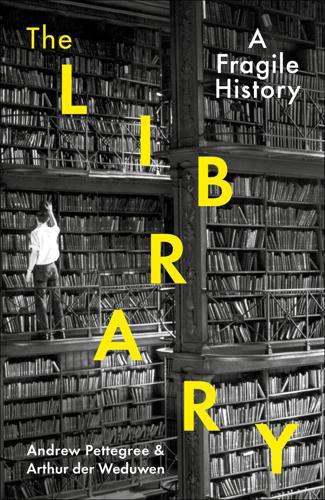
The Library: A Fragile History
by
Arthur Der Weduwen
and
Andrew Pettegree
Published 14 Oct 2021
Others had grown quickly as repositories of redundant church books confiscated from the dissolved monasteries, most of which were irrelevant to the needs of their anticipated patrons. It was as patently insufficient a vision of the public library as Mazarin’s lofty and limited invitation to scholars of the Republic of Letters to inspect the treasures he had assembled in his library in Paris. Neither would have an enduring future. A Contested Inheritance The origins of the town library can be traced to the era of Charlemagne.2 In 802, the Synod of Aachen had made parish churches responsible for keeping a minimal number of liturgical books.
…
When Gruter returned home in the spring of 1625 he found only trampled remnants of a once proud library: ‘the sight would make even a stone burst into tears’. The manuscripts taken by Sixtinus had not been seen since. One can imagine that news of his death in 1649 spread like wildfire throughout the international Republic of Letters. The books did not come to the market immediately: it took some time to identify the heir to the estate. Luckily the man in question, a Geldrian nobleman, turned out to be keen to sell the books. This was an event not to be missed, but the demands of work and expense of travel prevented some prominent scholars from attending.
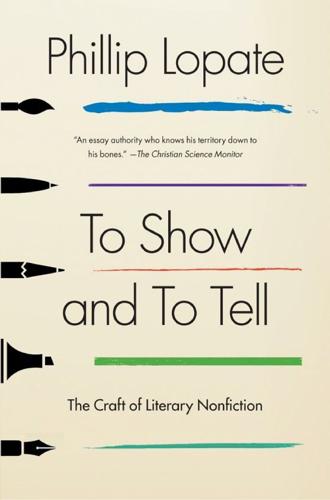
To Show and to Tell: The Craft of Literary Nonfiction
by
Phillip Lopate
Published 12 Feb 2013
Perhaps a more snobbish objection to the memoir is that it is too inclusive, disregarding class distinctions and other claims to authority. The ever-receptive William Dean Howells, Yagoda writes, said that autobiographical books were “ ‘the most delightful of all reading,’ in large part because they constituted the most democratic province of the republic of letters.” On the other hand, William Gass’s antimemoir screed takes the more exclusionary road in demanding, “Why is it so exciting to say, now that everyone knows it anyway, ‘I was born . . . I was born . . . I was born?’ I pooped in my pants, I was betrayed, I made straight A’s.” If that were all the best memoirs said, of course, Gass would be right, but it is noteworthy how many educated people nodded in agreement at his broad-brush attack.
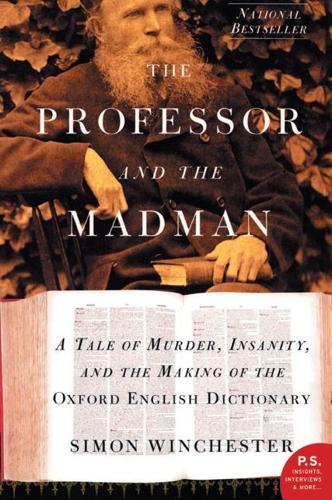
The Professor and the Madman: A Tale of Murder, Insanity and the Making of the Oxford English Dictionary
by
Simon Winchester
Published 27 Sep 1998
Voltaire proposed that the French model a new dictionary of their own on Johnson’s; and the venerable Accademia della Crusca wrote from Florence that Johnson’s work will be “a perpetual Monument of Fame to the Author, an Honour to his own Country in particular, and a general Benefit to the republic of Letters throughout all Europe.” “In an age of dictionaries of all kinds,” wrote a modern consideration, “Johnson’s contribution was simply primus inter pares.” And Robert Burchfield, who edited the four-volume supplement to the Oxford English Dictionary in the 1970s, had no doubts: Johnson managed to combine being both a lexicographer and a supremely literate man: “In the whole tradition of the English language and literature the only dictionary compiled by a writer of the first rank is that of Dr.
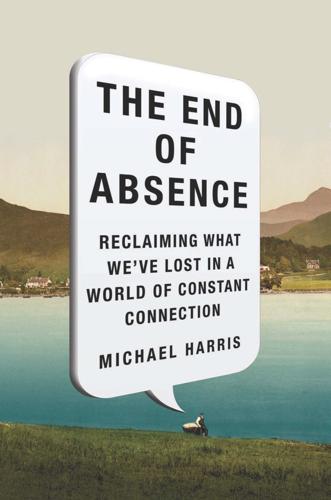
The End of Absence: Reclaiming What We've Lost in a World of Constant Connection
by
Michael Harris
Published 6 Aug 2014
When Clifton Fadiman, a midcentury literary lion and member of Encyclopædia Britannica’s board of editors, realized in the 1990s that the Internet would outdo Britannica, the octogenarian said, “I guess we will just have to accept the fact that minds less educated than our own will soon be in charge.” Fadiman was, in his elitist way, making the same point T. S. Eliot made in 1934 when he wrote, “Where is the knowledge we have lost in information?” Where is the signal amid this noise? In a remarkably short period of time, we’ve moved from the eighteenth century’s “Republic of Letters”—a self-selected group of intellectuals talking among themselves and generally ignoring the masses—to what we might call a “Crowd of Letters” today. I don’t know whether Fadiman was overreacting (or how we might test his assertion), but as beleaguered newspapers (and the rest of us) turn increasingly to Wikipedia as a fact-checking source, it’s worth wondering how an encyclopedia devoid of traditional authority structures goes about ascertaining that slippery thing we end up calling “truth.”
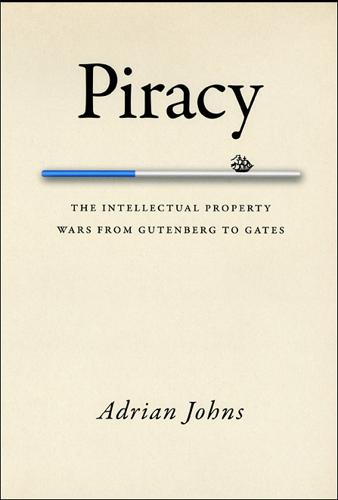
Piracy : The Intellectual Property Wars from Gutenberg to Gates
by
Adrian Johns
Published 5 Jan 2010
Exactly the same problem plagued attempts to demonstrate perpetual motion experimentally – witnesses convinced beforehand of its impossibility would refuse to believe their eyes. And he prefaced his account of the rotator with a violent attack on “philosophical criticks” who banded together to reinforce such complacencies, reprinting his tracts at length in order to ridicule them. This was business as usual in the republic of letters, Kenrick sighed; the natural state of that republic was a civil war fought by “pirates by profession.” In Kenrick’s view, Donaldson v. Becket mattered because it finally made apparent this shared plight of the Grub Street author and the projecting inventor. “The inventor of a machine, or art useful in life,” he noted, “is now almost universally admitted to stand precisely on the same footing with the author of a book.”
…
The only real precedent, moreover, was that resulting from the union of Ireland and Britain, which was hardly an auspicious example given its effect on the Dublin industry. And many publishers, and especially printers, would be against it. Philadelphia’s in particular protested that it would price “honest farmers” out of America’s “reading community,” destroying the nation’s republic of letters. Clay hit upon the strategy of a “manufacturing clause” in a bid to head off their opposition. He would make the prompt printing of an edition in America a condition of a foreigner’s holding a U.S. copyright. This, he hoped, would align the copyright quest with Careyite political economy. Much of the contest that ensued derived from this attempt.
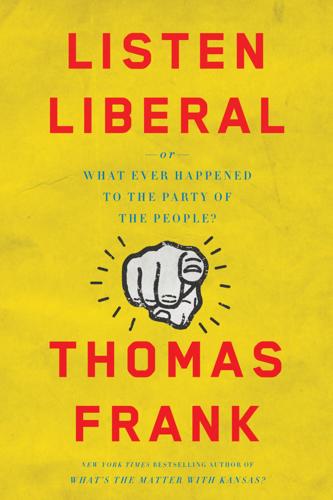
Listen, Liberal: Or, What Ever Happened to the Party of the People?
by
Thomas Frank
Published 15 Mar 2016
The Boston area has all the ancillary advantages to show for it: a highly educated population, an unusually large number of patents, and more Nobel laureates than any other city in the country.7 Harvard University, the country’s oldest institution of higher learning, is actually mentioned in Massachusetts’s 1780 constitution, a document which quaintly declares the commonwealth’s interest in promoting “the republic of Letters.” These days, all Americans are interested in higher ed, but not because we want better poets and theologians. We love our universities because we believe they carry a straight-up payoff in dollars. Here, too, Massachusetts is the model. The Boston area has prospered fabulously as knowledge workers have become the country’s dominant cohort.
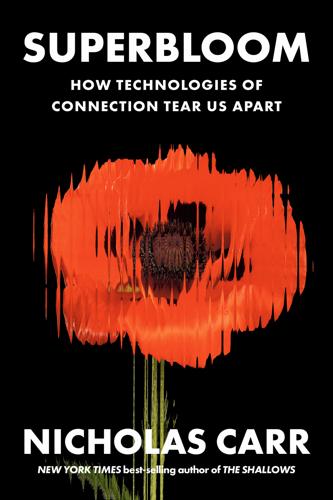
Superbloom: How Technologies of Connection Tear Us Apart
by
Nicholas Carr
Published 28 Jan 2025
It breeds empathy and understanding. It mends divisions and calms strife. It turns adversaries into allies, enemies into friends. Communication is a moral force. And if communication is good, more of it must be better. Ever since the great Enlightenment philosophers started dreaming of a world-encompassing Republic of Letters, society has felt an obligation to encourage any and all attempts to increase the efficiency of communication—its speed, its volume, its reach. Advances in media technology came to seem integral to liberalism, pluralism, and democracy—to the entire project of modernity. The eighteenth-century German philosopher Johann Gottfried von Herder expressed the common wisdom well in his Letters for the Advancement of Humanity: “The more and the more easily messengers reach everywhere here, everywhere there, then the more the communication of thoughts is advanced, and no prince, no king will seek to hinder this who understands the infinite advantages of the mind-industry, of mind-culture, of the reciprocal communication of inventions, thoughts, suggestions, even of mistakes committed and weaknesses.”15 To stand in the way of communication is to stand in the way of progress.
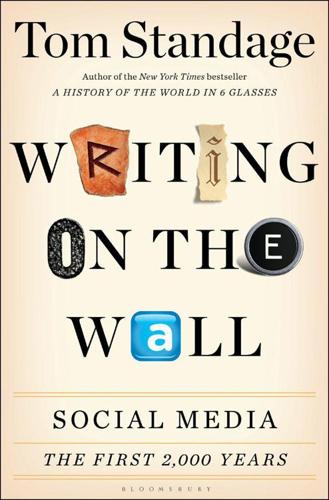
Writing on the Wall: Social Media - the First 2,000 Years
by
Tom Standage
Published 14 Oct 2013
“Small Change: Why the Revolution Will Not Be Tweeted.” New Yorker, October 4, 2010. Goebbels, J. “D attacks on the corrup coffee to beer Rundfunk als achte Großmacht.” Signale der neuen Zeit. 25 ausgewählte Reden von Dr. Joseph Goebbels. Munich: Zentralverlag der NSDAP, 1938. Goodman, D. The Republic of Letters: A Cultural History of the French Enlightenment. Ithaca: Cornell University Press, 1994. Gough, H. The Newspaper Press in the French Revolution. London: Routledge, 1988. Habermas, J. The Structural Transformation of the Public Sphere: An Inquiry into a Category of Bourgeois Society. Cambridge: MIT Press, 1989.

What Algorithms Want: Imagination in the Age of Computing
by
Ed Finn
Published 10 Mar 2017
Cham, Switzerland: Springer, 2016. Emergence, Complexity, and Computation 18. Rice, Stephen P. Minding the Machine: Languages of Class in Early Industrial America. Berkeley: University of California Press, 2004. Rid, Thomas. Rise of the Machines. New York: Norton, 2016. Riskin, Jessica. “Machines in the Garden.” Republics of Letters 1 (2) (April 30, 2010): 16–43. Rivoli, Dan, Chelsia Rose Marcius, and Leonard Greene. “Taxi Driver Fined $25K for Refusing Ride to Black Family.” New York Daily News, August 6, 2015. http://www.nydailynews.com/new-york/taxi-driver-fined-25k-refusing-ride-black-family-article-1.2317004. Rodriguez, Cain.
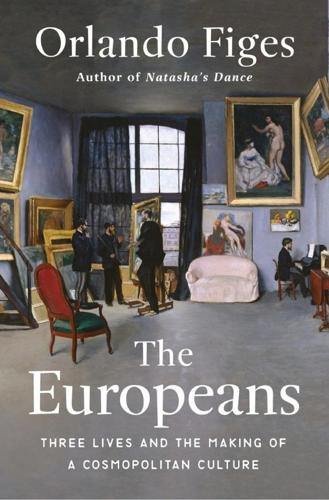
The Europeans: Three Lives and the Making of a Cosmopolitan Culture
by
Orlando Figes
Published 7 Oct 2019
It rules that country; it exerts its power over all spirits; it produces a universal weightiness and slowness; Sirocco is the intelligence that presides over all Italian heads, and I am tempted to believe that the difference one notices between the inhabitants of northern Lombardy, and those of the rest of Italy, derives from the fact that Lombardy is protected by the Apennines, which defend her from the havoc of the Sirocco.171 Voltaire built on Montesquieu’s idea, adding a secondary distinction between the progressive heart of European civilization in the Western capitals (the Republic of Letters) and the semi-Asiatic East. Drawing on these divisions, Hegel constructed a schema of historical progression from the infancy of European civilization in the South, Ancient Greece and Rome, to the German-centred Europe of the North (Hegel’s ‘end of History’). By the mid-nineteenth century, a distinct cultural map had thus emerged, with the core of ‘Europe’ in the north-west of the continent, in France, the Low Countries and the German lands, while on its periphery, from Spain to the Black Sea, there was an internal ‘Orient’.
…
Turgenev was a living example of this cosmopolitanism. He travelled constantly. His ability to make himself at home in Berlin, Paris, Baden-Baden, London or St Petersburg (and he would live in all of them) was the essence of his Europeanness. The ‘Europe’ he inhabited was an international civilization, a Republic of Letters based on the Enlightenment ideals of reason, progress and democracy. This is what he meant when he proclaimed: ‘I am a European, and I love Europe; I pin my faith to its banner, which I have carried since my youth.’ His literary personality was formed by Goethe, Shakespeare and Cervantes before he came to Gogol.
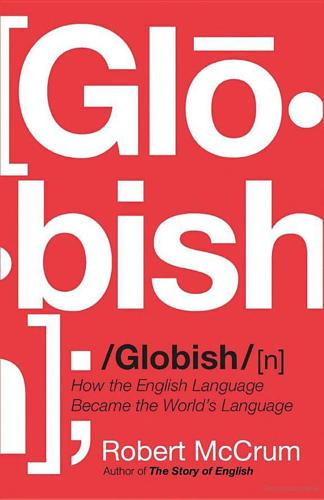
Globish: How the English Language Became the World's Language
by
Robert McCrum
Published 24 May 2010
After many vicissitudes, and the constant money worries familiar to freelance writers, Johnson’s Dictionary was finally published on 15 April 1755. It was instantly recognized as a landmark. ‘This remarkable work’, wrote one leading Italian lexicographer, ‘will be a perpetual monument of Fame to the Author, an Honour to his own Country, and a general Benefit to the Republic of Letters throughout Europe.’ The English could also celebrate the fact that Johnson had taken on the academies of Europe and beaten them at their own game (forty French academicians had just spent forty years producing the first French national dictionary). Johnson’s friend, David Garrick, summarized the metropolitan view: And Johnson, well armed, like a hero of yore Has beat forty French, and will beat forty more.
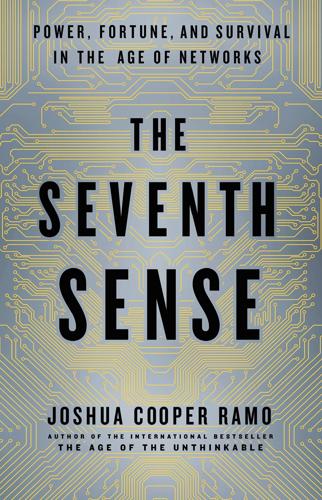
The Seventh Sense: Power, Fortune, and Survival in the Age of Networks
by
Joshua Cooper Ramo
Published 16 May 2016
Cochran, USN, “Joint Improvised Explosive Device Defeat Organization (JIEDDO): Tactical Successes Mired in Organizational Chaos; Roadblock in the Counter-IED Fight” (research report, Joint Forces Staff College, March 2007). A few days before Christmas: Thomas Jefferson and James Madison, The Republic of Letters: The Correspondence Between Thomas Jefferson and James Madison, 1776–1826, ed. James Morton Smith (New York: W. W. Norton, 1995), 1:457–59. Jefferson was then forty-four: Thomas Jefferson, Jefferson Abroad, ed. Douglas L. Wilson (New York: Modern Library, 1999), 131 (letter to Madame de Tesse of March 20, 1787).
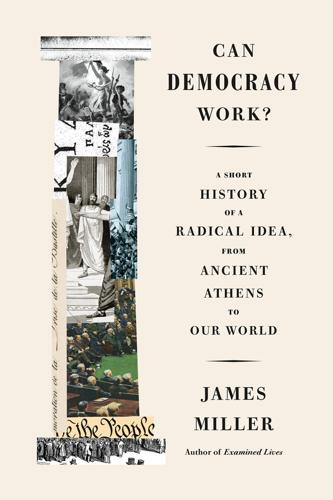
Can Democracy Work?: A Short History of a Radical Idea, From Ancient Athens to Our World
by
James Miller
Published 17 Sep 2018
“Simple Democracy was society governing itself without the aid of secondary means,” Paine explained. “By ingrafting representation upon Democracy, we arrive at a system of Government capable of embracing and confederating all the various interests and every extent of territory and population; and that is also as much superior to hereditary Government, as the Republic of Letters is to hereditary literature.” Two years later—in the improbable context of a “Report on the Principles of Public Morality” that commends terror as “the mainspring of popular government” in the midst of a revolution—Robespierre himself came to a similar conclusion even more emphatically: “A democracy is not a state where the people, continually assembled, regulate by themselves all public affairs, and still less one where one hundred thousand portions of the people, by measures that are isolated, hasty and contradictory, would decide the fate of the whole society.”

A History of the Bible: The Story of the World's Most Influential Book
by
John Barton
Published 3 Jun 2019
Matthew Tindal, Christianity as Old as the Creation (London, 1730), p. 186. 23. See Barr, Fundamentalism, especially pp. 72–85. 24. Richard Simon, Histoire critique du Vieux Testament (Paris, 1678). 25. On the Catholic background of early biblical criticism see P. J. Lambe, ‘Critics and Skeptics in the Seventeenth-Century Republic of Letters’, Harvard Theological Review, 81 (1988), pp. 271–96. 26. John Rogerson, in Rogerson, Rowland and Lindars (eds), The Study and Use of the Bible, p. 107. 27. See John H. Hayes, ‘Historical Criticism of the Old Testament Canon’, in Sæbø (ed.), Hebrew Bible/Old Testament, vol. 2, pp. 985–1005, esp. pp. 995–1005. 28.
…
Ernst (ed.), Schriftauslegung: Beiträge zur Hermeneutik des Neuen Testamentes und im Neuen Testament (Munich: Schöningh, 1972), pp. 89–149. LaHaye, Tim and Jenkins, Jerry B., Left Behind (Wheaton, Ill.: Tyndale House, 1995). Lambe, P. J., ‘Critics and Skeptics in the Seventeenth-Century Republic of Letters’, Harvard Theological Review, 81 (1988), pp. 271–96. Lambert, Wilfred G., Babylonian Wisdom Literature (Winona Lake, Ind.: Eisenbrauns, 1996). Lampe, G. W. H., ‘The Exposition and Exegesis of Scripture: To Gregory the Great’, in The Cambridge History of the Bible, vol. 2, pp. 155–83.
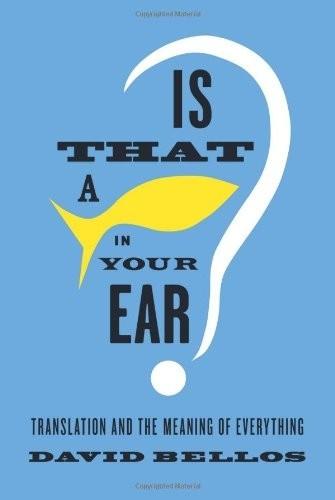
Is That a Fish in Your Ear?: Translation and the Meaning of Everything
by
David Bellos
Published 10 Oct 2011
Henri Godin, Les Ressources stylistiques du français contemporain (1948; 2nd ed., Oxford: Blackwell Scientific Publications, 1964), 2, 3. R. A. Sayce, Style in French Prose: A Method of Analysis (Oxford: Clarendon Press, 1953), 5. 27. TRANSLATING LITERARY TEXTS Pascale Casanova, The World Republic of Letters, trans. M. B. De-Bevoise (Cambridge, MA: Harvard University Press, 1999). Spanish could plausibly take over the role of “first interlanguage” in literary translation, but I see no sign of that happening yet. See www.penguinclassics.co.uk/static/penguinclassicsaboutus/index.html. Ibid.
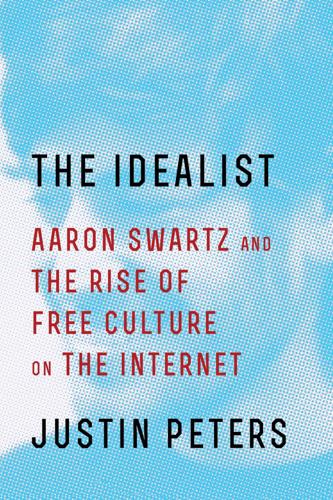
The Idealist: Aaron Swartz and the Rise of Free Culture on the Internet
by
Justin Peters
Published 11 Feb 2013
“My income barely supports my family, and I want five hundred dollars’ worth of books from England which I cannot obtain here, and which I cannot afford to purchase,” he wrote to Barlow in 1807.51 Webster eventually condemned the primacy of partisan political chatter in the nation’s cultural conversation. Little room was left for more scholarly debates, he complained to Oliver Wolcott Jr.: “vast sums of money [are] expended in donations to support a party or a newspaper—when not a cent can be obtained for very valuable purposes.”52 The Copyright Act of 1790 had portended the arrival of a republic of letters. But its citizens seemed primarily interested in the poison pen. Under these circumstances, Noah Webster began the project that would be his legacy: the American Dictionary of the English Language. His plan was madly presumptuous. Webster proposed to improve upon the work of Samuel Johnson, the celebrated British lexicographer and coffee wit whose own Dictionary of the English Language had been well beloved since its first publication in 1755.
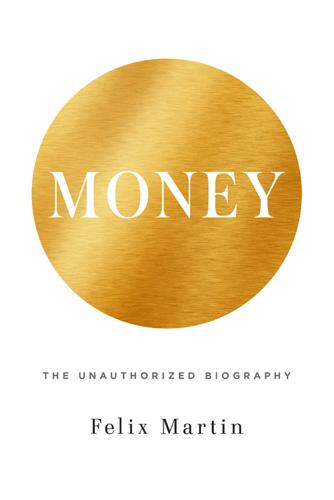
Money: The Unauthorized Biography
by
Felix Martin
Published 5 Jun 2013
Politically, it remained the bastion of the Ancien Régime—an unreconstructed feudal monarchy in a continent long since disturbed by the winds of constitutional change. Financially, France was one of the most backward states in Western Europe, but intellectually it was the centre of the world. The extraordinary contrast between its dazzling republic of letters and its moribund bodies politic and financial meant that it was the thinkers of the French Enlightenment who first fully articulated the link between money, banking, and politics. The most brilliant analysis of all appeared in the masterwork of the greatest constitutional thinker of the age: Charles-Louis de Secondat, Baron de la Brède et de Montesquieu.
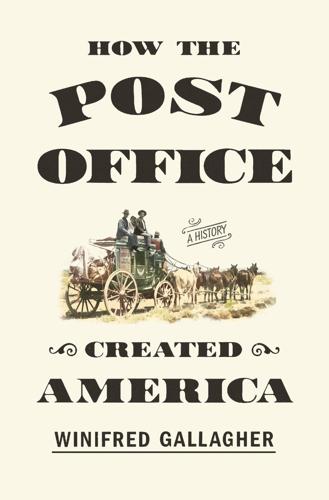
How the Post Office Created America: A History
by
Winifred Gallagher
Published 7 Jan 2016
By the early seventeenth century, France and England had opened the royal mails to their general populations—that is, to the segment able to pay the high postage. A century later, the combination of the Industrial Revolution and the Enlightenment, which encouraged the exchange of ideas in a so-called republic of letters, had induced other European nations to follow suit. These posts, however, were not public services in the modern sense of amenities provided by a government for its people’s good—usually because no profit-minded business would do so. These imperial systems were designed for official communications, producing revenue for the state, and, not least, espionage and surveillance.

Antwerp: The Glory Years
by
Michael Pye
Published 4 Aug 2021
‘If I were closer to you,’ Justus Lipsius wrote from Leiden when he was working on his great work on what ancient writers made of ancient history and ancient things, ‘I know I could get help from you and from your library.’37 Lipsius needed Ortelius’ formidable collection of coins and medals to see the heavy weapons on Trajan’s column in Rome, the different kinds of crosses used for crucifixions, the layout of amphitheatres.38 Ortelius in turn wanted the learned world to know what he had, which was the point of publishing his book on the incised heads of goddesses and gods on all the coins and medals he owned, and then giving copies away across Europe.39 ‘I reckon I can rival anyone in these parts for the number and the quality of my coins,’ he boasted to his nephew in London. ‘On books and coins, I believe I have spent more than two thousand crowns.’40 He had to be open like a library, like a shop, just like the humanist merchant class of Antwerp that Ascham so much admired. Among all the elegant work the self-conscious world of books, the Republic of Letters, left behind, all the stately collections of letters, the mutual compliments that soar far over any visible top – the Theatrum, according to Guilherme Postel was ‘after Holy Scripture, the greatest work of the world’41 – there was furious calculation. The Republic had to go on making a living.
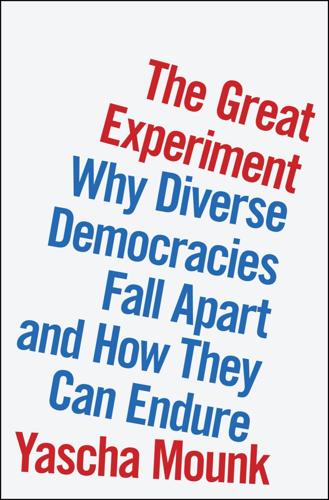
The Great Experiment: Why Diverse Democracies Fall Apart and How They Can Endure
by
Yascha Mounk
Published 19 Apr 2022
But if those of us who are committed to its values want to maximize its chances of success, we need to have the courage to paint the vision of a shared future that most people would actually want to live in—one in which as many people as possible conceive of themselves as proud and optimistic citizens of diverse democracies, choosing to emphasize what we have in common rather than what divides us. Let’s get to it. ACKNOWLEDGMENTS If it takes a village to raise a child, it takes an international republic of letters to write a book. That is probably why I have always found sitting down to write acknowledgments to be both a humbling and an anxiety-inducing experience: humbling because you realize just how much gratitude you owe to how many, some of it impossible to put in words or fully repay, and anxiety-inducing because it is impossible not to feel that you are leaving someone important out (and usually do).
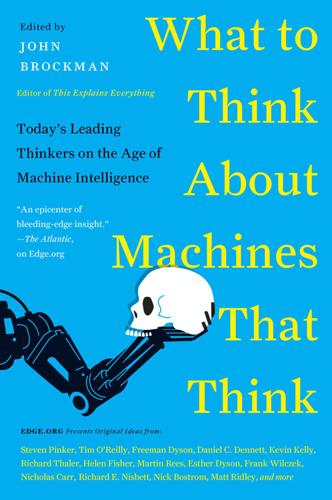
What to Think About Machines That Think: Today's Leading Thinkers on the Age of Machine Intelligence
by
John Brockman
Published 5 Oct 2015
Rather, it tells us that our appetites are shifting. We’re understandably awed by what sheer computation has achieved and will achieve; I’m happy to jump on the driverless virtual-reality bandwagon that careens off into that overpredicted future. But this awe is leading to a tilt in our culture. The digital republic of letters is yielding up engineering as the thinking metaphor of our time. In its wake lies the once complacent, now anxious figure with a more literary, less literal cast of mind. We’re cleaning up our act, embarrassed by the fumbling inconclusiveness of messy thinking. It’s unsurprising to hear that the United Kingdom’s education secretary recently advised teenagers to steer away from arts and humanities in favor of STEM disciplines if they’re to flourish.
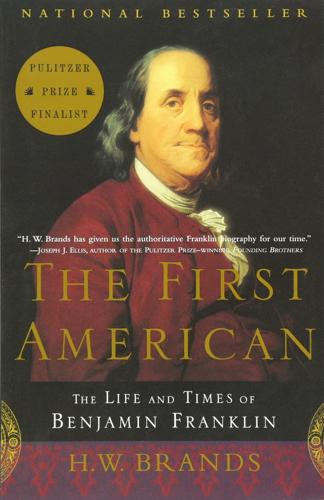
The First American: The Life and Times of Benjamin Franklin
by
H. W. Brands
Published 1 Jan 2000
Franklin has not only been recommended to us for his knowledge of the law, the rectitude of his morals and sweetness of his life and conversation,” the citation read, “but hath also by his ingenious inventions and successful experiments, with which he hath enriched the science of natural philosophy and more especially of electricity which heretofore was little known, acquired so much praise throughout the world as to deserve the greatest honours in the Republic of Letters.” The governing body of the ancient university went on to declare that henceforth said Franklin should be addressed and treated by all as “the most Worthy Doctor.” Neither in that era nor later were the recommendations of educators always followed, but this recommendation took, and Franklin thereafter was generally referred to as “Dr.
…
In 1772 Franklin was notified of his election as an associé étranger of the French Royal Academy of Sciences, one of only eight foreigners so honored. He was speaking no less accurately than politely when he answered, “A place among your foreign members is justly esteemed by all Europe the greatest honour a man can arrive at in the Republic of Letters.” The following year his fame widened further. A Paris physician named Jacques Barbeu-Dubourg, himself something of a scientific celebrity, with membership in royal academies and societies across Europe, had for some time been translating Franklin’s papers into French. In 1773 these appeared as the Oeuvres de M.
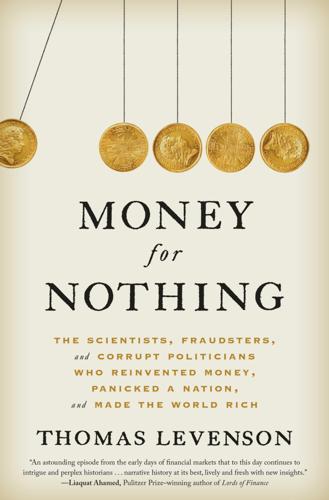
Money for Nothing
by
Thomas Levenson
Published 18 Aug 2020
Neumann did, his data traveling a tortuous road. It went first to Henri Justel, a French Protestant who had come to London to escape France’s increasingly harsh persecution of non-Catholics. Justel was no deep thinker, but he eagerly maintained connections across Europe, a node in the web of learned men already being called the Republic of Letters. Justel may have presented Neumann’s work to the Society himself, but if so, no one seems to have paid any attention. To most of the fellows, a list of deaths in a provincial German town would have been just one more of the hundreds of earnest observations that earnest amateurs had sent off to the Royal Society since its founding—everything from that account of “a Very Odd Monstrous Calf,” published in the first issue by the great Robert Boyle himself, to an investigation of water pressure at depth, performed by “a Person of Honour” in 1680, to Robert Boyle’s questions for a Doctor Lower about blood transfusion, wondering, among other hypotheses, “whether a fierce Dog, by being often quite new stocked with the blood of a cowardly Dog, may not become more tame,” or, from Paris, Monsieur de la Quintinie’s “some further directions and observations about Melons,” which concludes with the still-sound advice to “trouble not your self to have big Melons, but good ones.”
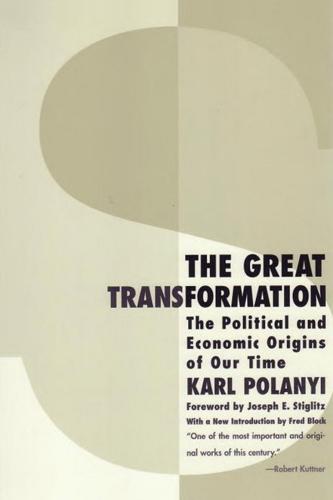
The Great Transformation: The Political and Economic Origins of Our Time
by
Karl Polanyi
Published 27 Mar 2001
In an established society the right to nonconformity must be institutionally protected. The individual must be free to follow his conscience without fear of the powers that happen to be entrusted with administrative tasks in some of the fields of social life. Science and the arts should always be under the guardianship of the republic of letters. Compulsion should never be absolute; the “objector” should be offered a niche to which he can retire, the choice of a “second-best” that leaves him a life to live. Thus will be secured the right to nonconformity as the hallmark of a free society. Every move toward integration in society should thus be accompanied by an increase of freedom; moves toward planning should comprise the strengthening of the rights of the individual in society.
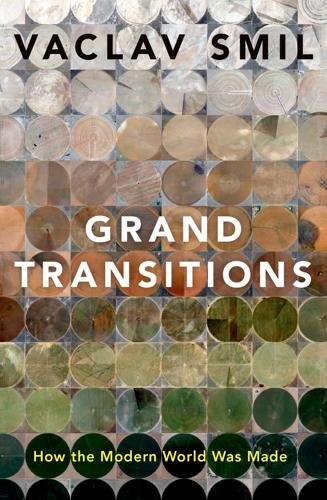
Grand Transitions: How the Modern World Was Made
by
Vaclav Smil
Published 2 Mar 2021
In 2009 he concluded that Britain led because it was able to take advantage of its physical endowment “thanks to the great synergy of the Enlightenment: the combination of the Baconian program in useful knowledge and the recognition that better institutions created better incentives” (Mokyr 2009, 122). Eight years later he credited the Enlightenment as the decisive spark in politically fragmented Europe, where the new market for ideas was sustained by a transnational community (the Republic of Letters) that disseminated new scientific findings. “The big difference between Europe and the rest of the world was the Enlightenment and its implications for scientific and technological progress” (Mokyr 2017, 339). Both of these grand explanations have demonstrable weaknesses. Enlightenment science was not behind every innovation and every technical advance of the era, and it would be difficult to transform even superior ideas into quotidian realities without abundant energy and without cheap capital.
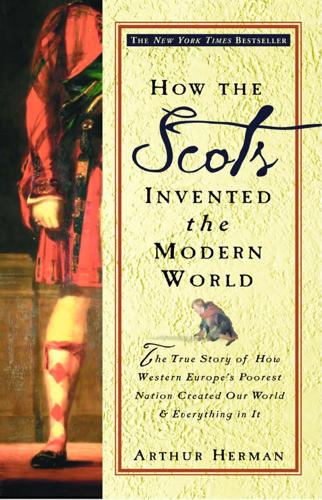
How the Scots Invented the Modern World: The True Story of How Western Europe's Poorest Nation Created Our World and Everything in It
by
Arthur Herman
Published 27 Nov 2001
Later members included Adam Ferguson, who joined in the spring of 1756, and Lord Kames himself. As with Monboddo and Kames, most of its titled members took their peerages with their service on the judicial bench. The rest owed their prominence to their pens, or to their status in one of the middle-class professions. For ten years it was the central forum of Edinburgh’s republic of letters. A paper or talk presented there received a fairer and more rigorous hearing than it could from any academic or university audience. As one participant put it, the informal proceedings made “the Literati of Edinburgh Less Captious and Pedantick then they were elsewhere.” The astonishing diversity of the views and experience of its members made it particularly valuable.
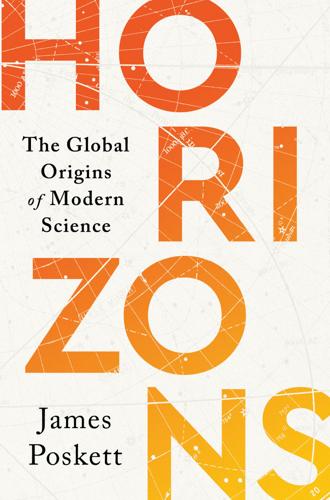
Horizons: The Global Origins of Modern Science
by
James Poskett
Published 22 Mar 2022
Yoshida, ‘“Dutch Studies” and Natural Sciences’, in Blussé, Remmelink, and Smits, eds., Bridging the Divide, Kenkichiro Koizumi, ‘The Emergence of Japan’s First Physicists: 1868–1900’, History and Philosophy of the Physical Sciences 6 (1975): 7–13, James Bartholomew, The Formation of Science in Japan: Building a Research Tradition (New Haven: Yale University Press, 1989), 10–15, Marcon, The Knowledge of Nature, 128–30, Hiroshi, ‘The Herbal of Dodonaeus’, 100–1, and Tôru Haga, ‘Dodonaeus and Tokugawa Culture: Hiraga Gennai and Natural History in Eighteenth-Century Japan’, in Vande Walle and Kasaya, eds., Dodonaeus in Japan, 242–51. 58Marcon, The Knowledge of Nature, 135–7, and Skuncke, Carl Peter Thunberg, 93–9 and 101–4. 59Skuncke, Carl Peter Thunberg, 120–6. 60Skuncke, Carl Peter Thunberg, 122–6. 61Skuncke, Carl Peter Thunberg, 105 and 128–35, and Marcon, The Knowledge of Nature, 135–7. 62Skuncke, Carl Peter Thunberg, 130 and 206, and Richard Rudolph, ‘Thunberg in Japan and His Flora Japonica in Japanese’, Monumenta Nipponica 29 (1974): 168. 63Carl Thunberg, Flora Japonica (Leipzig: I. G. Mülleriano, 1784), 229. Part Three: Capitalism and Conflict, c.1790–1914 5. Struggle for Existence 1Justin Smith, ‘The Ibis and the Crocodile: Napoleon’s Egyptian Campaign and Evolutionary Theory in France, 1801–1835’, Republic of Letters 6 (2018), Paul Nicholson, ‘The Sacred Animal Necropolis at North Saqqara: The Cults and Their Catacombs’, in Divine Creatures: Animal Mummies in Ancient Egypt, ed. Salima Ikram (Cairo: American University in Cairo Press, 2005), and Caitlin Curtis, Craig Millar, and David Lambert, ‘The Sacred Ibis Debate: The First Test of Evolution’, PLOS Biology 16 (2018). 2Jean Herold, Bonaparte in Egypt (London: Hamish Hamilton, 1962), 164–200, Charles Gillispie, ‘Scientific Aspects of the French Egyptian Expedition 1798–1801’, Proceedings of the American Philosophical Society 133 (1989), Nina Burleigh, Mirage: Napoleon’s Scientists and the Unveiling of Egypt (New York: Harper, 2007), vi–x, and Jane Murphy, ‘Locating the Sciences in Eighteenth-Century Egypt’, The British Journal for the History of Science 43 (2010). 3Toby Appel, The Cuvier–Geoffroy Debate: French Biology in the Decades before Darwin (Oxford: Oxford University Press, 1987), 1–10 and 69–97, Burleigh, Mirage, 195–207, Curtis, Millar, and Lambert, ‘The Sacred Ibis Debate’, Smith, ‘The Ibis and the Crocodile’, and Murphy, ‘Locating the Sciences’, 558–65. 4Appel, The Cuvier–Geoffroy Debate, 72–7, and Nicholson, ‘The Sacred Animal Necropolis’, 44–52. 5Curtis, Millar, and Lambert, ‘The Sacred Ibis Debate’, 2–5, Smith, ‘The Ibis and the Crocodile’, 5–9, and Martin Rudwick, Bursting the Limits of Time: The Reconstruction of Geohistory in the Age of Revolution (Chicago: University of Chicago Press, 2007), 394–6. 6Curtis, Millar, and Lambert, ‘The Sacred Ibis Debate’, 2–5, Smith, ‘The Ibis and the Crocodile’, 5–9, Rudwick, Bursting the Limits of Time, 394–6, Appel, The Cuvier–Geoffroy Debate, 82, and Martin Rudwick, Georges Cuvier, Fossil Bones, and Geological Catastrophes: New Translations and Interpretations of the Primary Texts (Chicago: University of Chicago Press, 2008), 229. 7Smith, ‘The Ibis and the Crocodile’, 4, Robert Young, Darwin’s Metaphor: Nature’s Place in Victorian Culture (Cambridge: Cambridge University Press, 1985), 40–1, Marwa Elshakry, ‘Spencer’s Arabic Readers’, in Global Spencerism: The Communication and Appropriation of a British Evolutionist, ed.
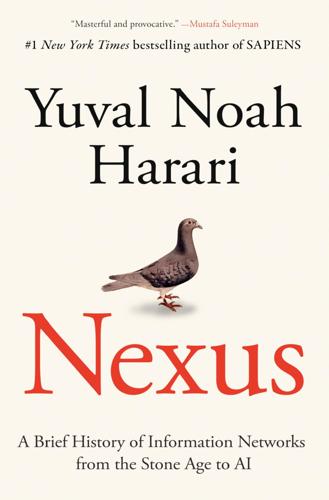
Nexus: A Brief History of Information Networks From the Stone Age to AI
by
Yuval Noah Harari
Published 9 Sep 2024
For discussions of the democratic characteristics of the early modern Netherlands, see Maarten Prak, The Dutch Republic in the Seventeenth Century, trans. Diane Webb (Cambridge, U.K.: Cambridge University Press, 2023); J. L. Price, Holland and the Dutch Republic in the Seventeenth Century: The Politics of Particularism (Oxford: Clarendon Press, 1994); Catherine Secretan, “ ‘True Freedom’ and the Dutch Tradition of Republicanism,” Republics of Letters: A Journal for the Study of Knowledge, Politics, and the Arts 2, no. 1 (2010): 82–92; Henk te Velde, “The Emergence of the Netherlands as a ‘Democratic’ Country,” Journal of Modern European History 17, no. 2 (2019): 161–70; Maarten F. Van Dijck, “Democracy and Civil Society in the Early Modern Period: The Rise of Three Types of Civil Societies in the Spanish Netherlands and the Dutch Republic,” Social Science History 41, no. 1 (2017): 59–81; Remieg Aerts, “Civil Society or Democracy?
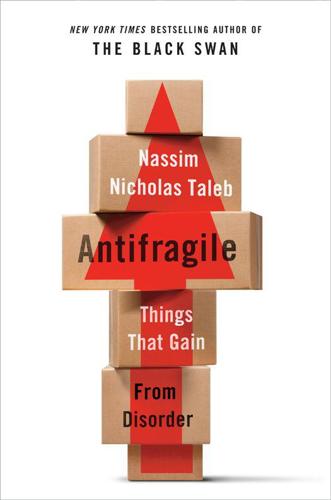
Antifragile: Things That Gain From Disorder
by
Nassim Nicholas Taleb
Published 27 Nov 2012
Oppenheimer, 2007, “Easy Does It: The Role of Fluency in Cue Weighting.” Judgment and Decision Making 2(6): 371–379. Sharpe, Virginia A., and Alan I. Faden, 1998, Medical Harm: Historical, Conceptual, and Ethical Dimensions of Iatrogenic Illness. Cambridge: Cambridge University Press. Shelford, April G., 2007, Transforming the Republic of Letters: Pierre-Daniel Huet and European Intellectual Life, 1650–1720. Rochester, N.Y.: University of Rochester Press. Shimabukuro, M., et al., 1998, “Lipoapoptosis in Beta-Cells of Obese Prediabetic Fa/Fa Rats. Role of Serine Palmitoyltransferase Overexpression.” Journal of Biological Chemistry 273: 32487–32490.
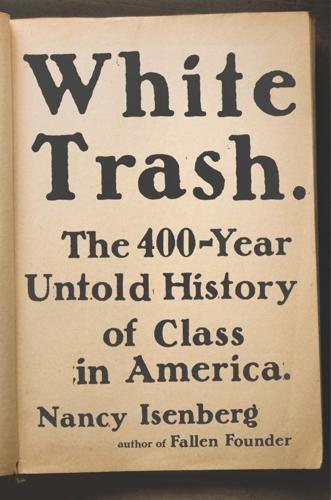
White Trash: The 400-Year Untold History of Class in America
by
Nancy Isenberg
Published 20 Jun 2016
“Jefferson’s Reply to the Representations of Affairs in America by British Newspapers” [before November 20, 1784], PTJ, 7:540–45; Wallace Evan Davies, “The Society of Cincinnati in New England, 1783–1800,” William and Mary Quarterly 5, no. 1 (January 1948): 3–25, esp. 3, 5. 31. Thomas Jefferson to Abigail Adams, February 22, 1787, PTJ, 11:174–75; Thomas Jefferson to James Madison, January 30 and February 5, 1787, in The Republic of Letters: The Correspondence Between Thomas Jefferson and Madison, 1776–1826, ed. James Morton Smith, 3 vols. (New York: Norton, 1994), 1:461; Burstein and Isenberg, Madison and Jefferson, 146–48, 168; Woody Holton, Unruly Americans and the Origins of the Constitution (New York: Hill & Wang, 2007), 145–48, 155, 159; and David P.
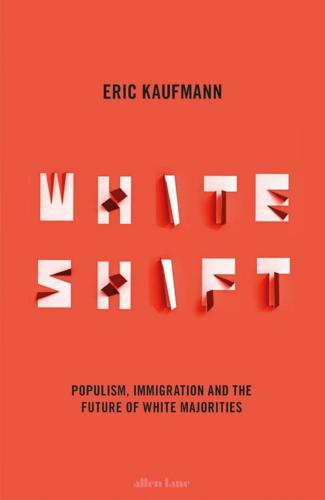
Whiteshift: Populism, Immigration and the Future of White Majorities
by
Eric Kaufmann
Published 24 Oct 2018
History is extremely important. Most European countries have national myths of being defenders or leaders of Christian Europe. In other words, nationalism and Europeanism reinforce each other. France has a history of being the leader of Europe’s counter-Reformation and the fount of its Enlightenment. The European ‘republic of letters’ spoke French. Macron relishes this imperial role. Austria and Germany occupy from the territories of the Holy Roman Empire, which sought to recreate the glory of Christian Rome on European soil. Poland’s historic opposition to Russia pushes it culturally towards Europe while Spain, Portugal, Greece and Hungary possess nationalist myths of fighting against Moors and Turks to defend Christian Europe’s honour.

Enemies and Neighbours: Arabs and Jews in Palestine and Israel, 1917-2017
by
Ian Black
Published 2 Nov 2017
Achcar, Gilbert, The Arabs and the Holocaust. Saqi, 2010. Adwan, Sami, Dan Bar-On and Eyal Naveh (eds.), Side By Side: Parallel Histories of Israel–Palestine. The New Press, 2012. Adwan, Sami, Efrat Ben-Zeev, Menachem Klein, and others, Zoom In: Palestinian Refugees of 1948, Remembrances. Republic of Letters, 2011. Agnon, Shmuel Yosef, Me-atzmi el atzmi: Articles, Letters and Speeches. Schocken, 1976. Al-Arif, Arif, Nakbat Bayt al-Maqdis w’al Firdaus al-mafqoud, 1947–1952 (The Catastrophe of Jerusalem and the Lost Paradise). Al-Maktaba al-Asriyya, Beirut, 1958–1960. Al-Asmar, Fawzi, Lihiyot Aravi be-Yisrael (To be an Arab in Israel), Israel Shahak, 1975.
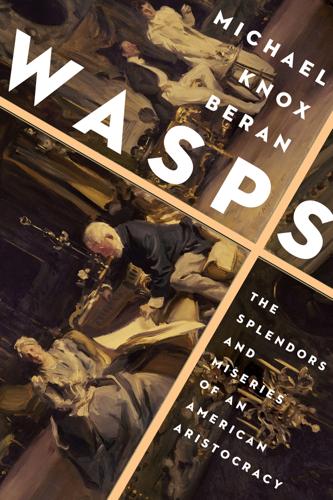
Wasps: The Splendors and Miseries of an American Aristocracy
by
Michael Knox Beran
Published 2 Aug 2021
Archie Roosevelt was employed by Sinclair at the time, in a position obtained because he was Ted’s brother and a Roosevelt. Fall was convicted and sentenced to a year in jail; Sinclair received a shorter sentence for contempt of Congress and jury tampering. V. Berry had a sharp nose for what was doing in the republic of letters; the close friend, as we have seen, of Edith Wharton and Marcel Proust, he lived to see the Lost Generation of the Jazz Age before his death in 1927. He seems only narrowly to have missed Melville, his Van Rensselaer cousin, with whose mother and sister he vacationed as a boy. Amory Gardner (seated beside Cotty Peabody and Sherrard Billings) took up the aging Plato’s belief that poetry and play are the molders of community.
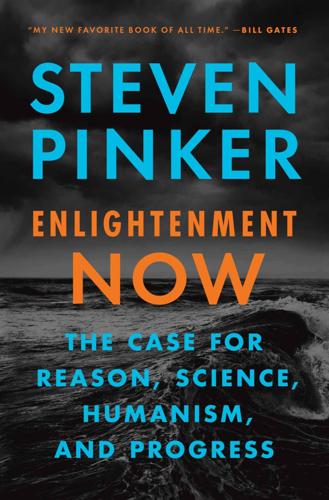
Enlightenment Now: The Case for Reason, Science, Humanism, and Progress
by
Steven Pinker
Published 13 Feb 2018
The defensive pugnacity belongs to a culture: Snow’s Second Culture of literary intellectuals, cultural critics, and erudite essayists.11 The writer Damon Linker (citing the sociologist Daniel Bell) characterizes them as “specialists in generalizations, . . . pronouncing on the world from out of their individual experiences, habits of reading and capacity for judgment. Subjectivity in all of its quirks and eccentricities is the coin of the realm in the Republic of Letters.”12 This modus could not be more different from the way of science, and it’s the Second Culture intellectuals who most fear “scientism,” which they understand as the position that “science is all that matters” or that “scientists should be entrusted to solve all problems.” Snow, of course, never held the lunatic position that power should be transferred to the culture of scientists.
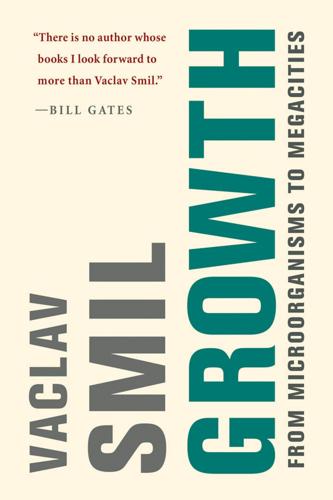
Growth: From Microorganisms to Megacities
by
Vaclav Smil
Published 23 Sep 2019
The most persistent inquest into the ultimate causes of economic growth has been carried out by Joel Mokyr. He has stressed the importance of knowledge as the key reason behind the Western economic rise (Mokyr 2002) and in his latest book he traces the origins of the modern economy to what is known as the “Republic of Letters” (Mokyr 2017). Its market for ideas flourished in early modern Europe between 1500 and the end of the Enlightenment, with political fragmentation supporting intellectual inquiries, a precondition that was absent at that time anywhere else, including technically adept China. According to Mokyr, the origins of economic growth have to do more with enlightened reasoning (Desiderius Erasmus, Francis Bacon, and Isaac Newton) than with any distinct technical or business practices.
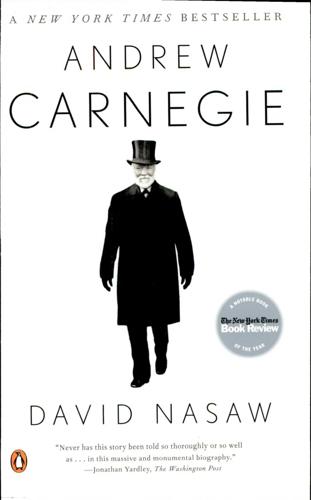
Andrew Carnegie
by
David Nasaw
Published 15 Nov 2007
WITHIN WEEKS of returning to New York and taking up residence in his new home in the fall of 1902, Carnegie took the train to Washington to meet with President Roosevelt and be honored at the dedication of his Washington library. Carnegie, still courting and being courted by the president, returned every compliment. Theodore Roosevelt, he told his audience, was not just the president of the United States but “a prince in the republic of letters…I doubt not that of the books taken from this library his will rank high in the list. We hail him to-day, therefore in the dual capacity of President and author, positions unsurpassed in their several spheres, a rare and wonderful combination.”38 Had they been closer in age, or had Roosevelt had the time or inclination to visit Carnegie at Skibo, they might have become friends.
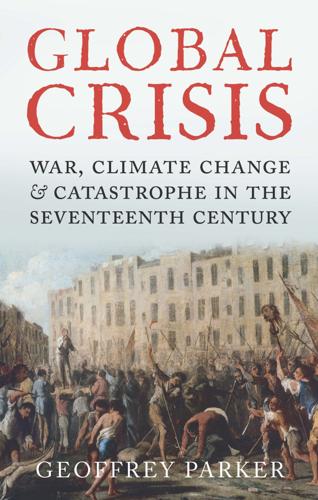
Global Crisis: War, Climate Change and Catastrophe in the Seventeenth Century
by
Geoffrey Parker
Published 29 Apr 2013
In Naples, they attended some of the weekly meeting of the ‘Academici Investigantes’, joining about sixty others to hear a paper that ‘defended the Lord Verulam's [Bacon's] opinion’ and to watch an ‘experiment’. Everyone, they found, was ‘well acquainted with writings of all the learned and ingenious men’ of Europe, whether dead (such as Bacon, Harvey, Galileo and Descartes) or alive (they named Robert Boyle, Thomas Hobbes and Robert Hooke).61 The ‘Republic of Letters’ also included practitioners who lived east of the Elbe and south of the Pyrenees. The Danzig brewer and astronomer Johannes Hevelius, who in 1647 published the lavishly illustrated Selenographia, the first lunar atlas (see Plate 1), had studied at Leiden and met scholars in England and France; became a Fellow of the Royal Society; and welcomed Edmond Halley and other prominent scientists to his impressive observatory in Danzig.
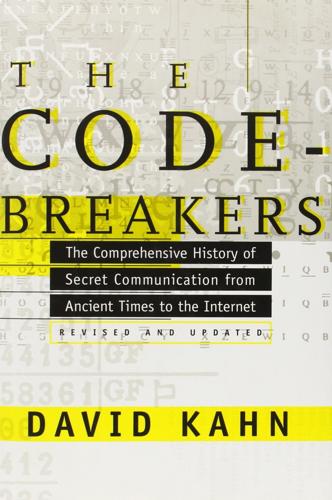
The Codebreakers: The Comprehensive History of Secret Communication From Ancient Times to the Internet
by
David Kahn
Published 1 Feb 1963
The chart shows that H has preceded N three times—in other words, that the digraph HN has occurred three times—and has followed it, to make NH, just once. In a chart like this, plaintext e is about as hard to recognize under its cipher masquerade as a six-and-a-half-foot-tall man at a costume party. It is president of this republic of letters because it leads all the rest in frequency, yet it is democratic enough to contact more different letters more often than any other letter, including a goodly number in the low-frequency bracket. Indubitably, N here is President e. Next most distinctive are the three high-frequency vowels, a, i, and o.